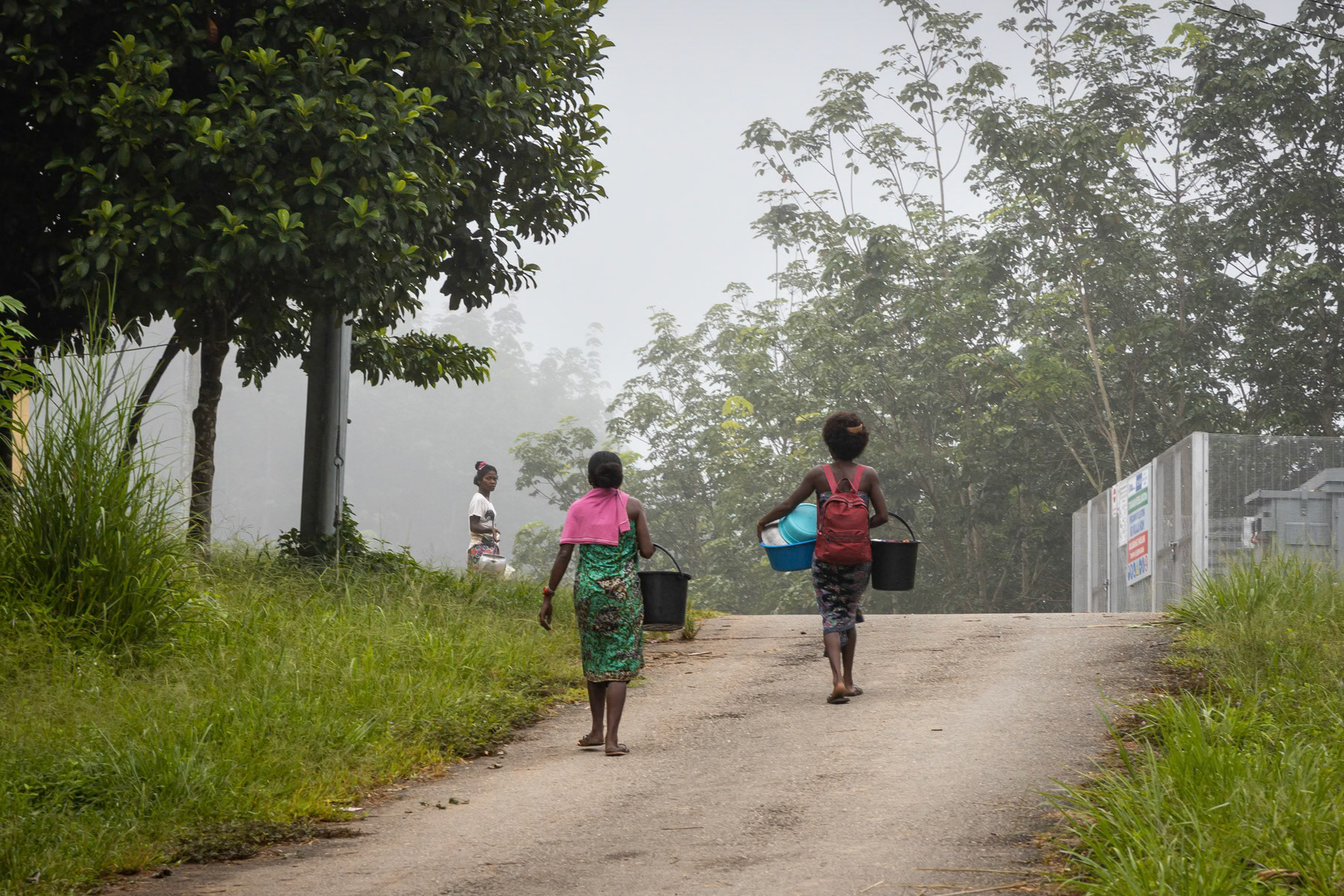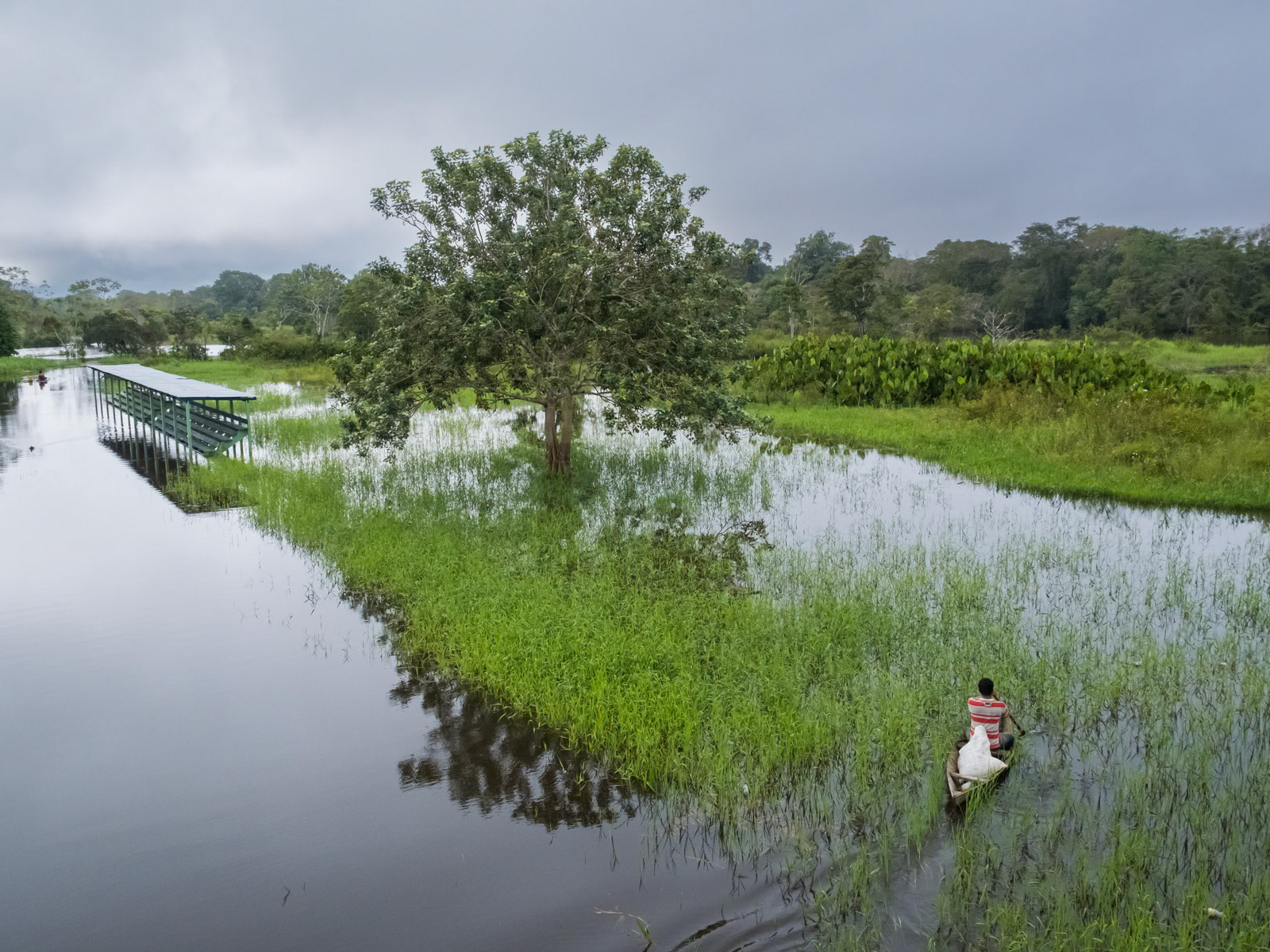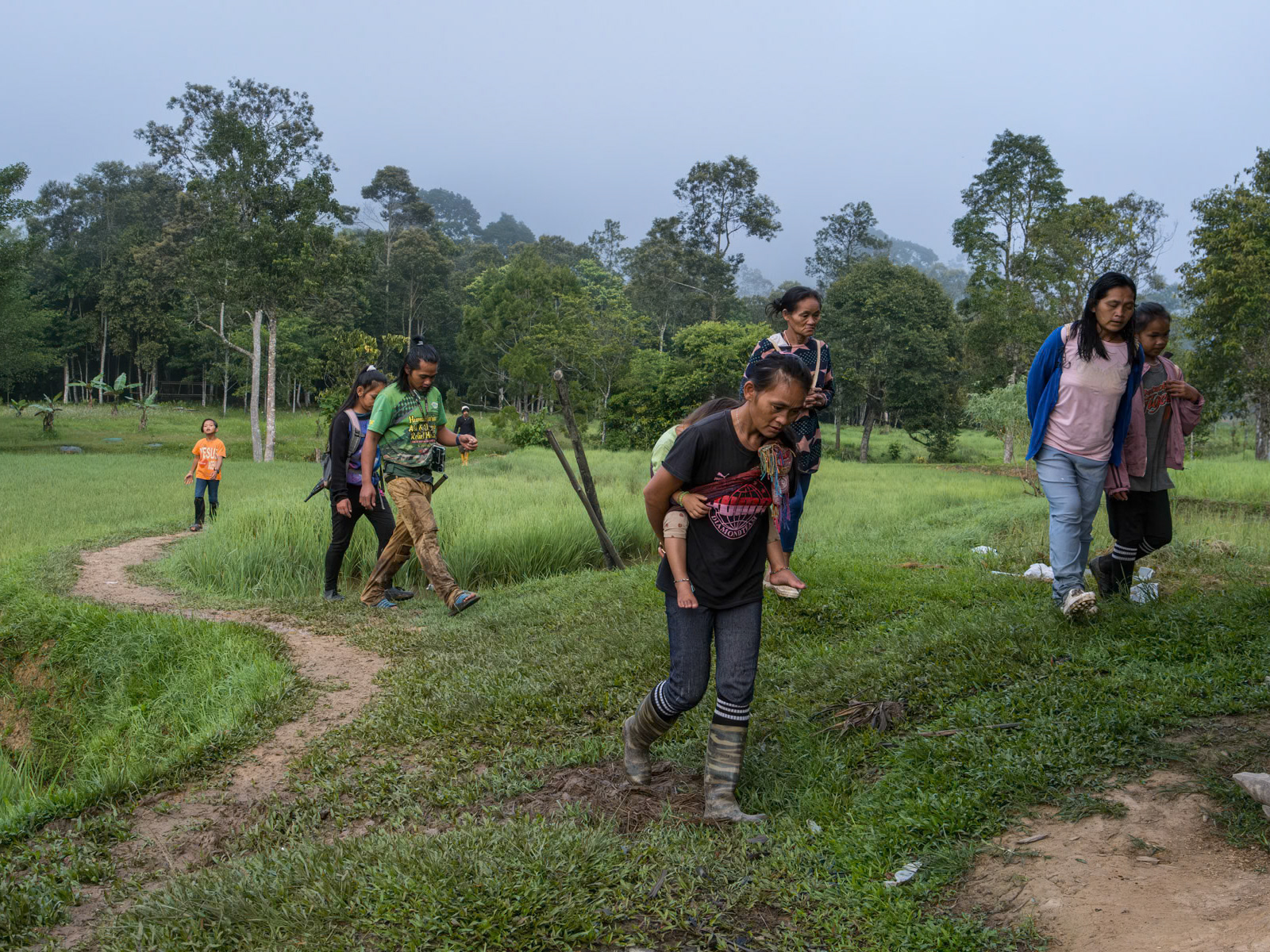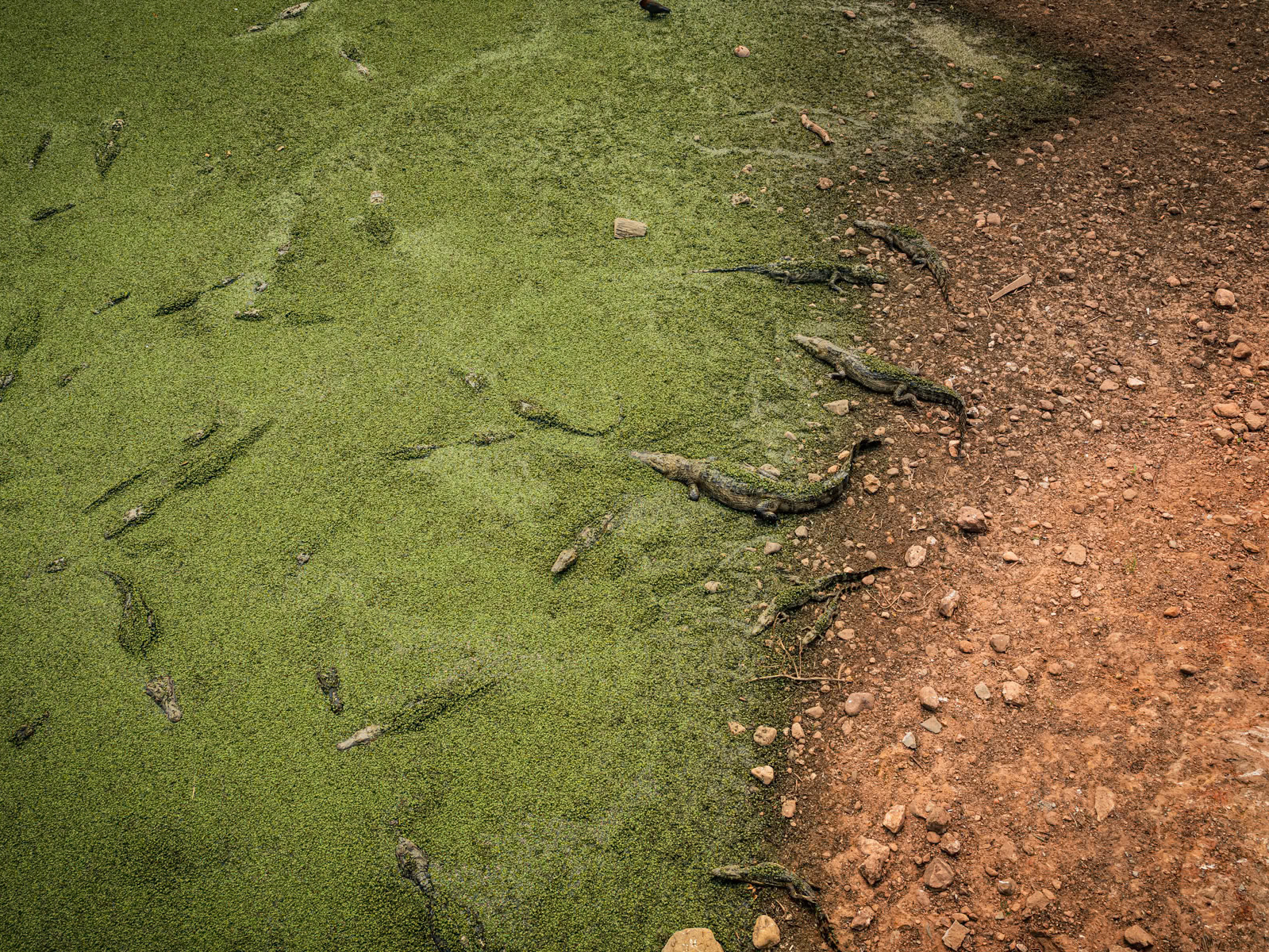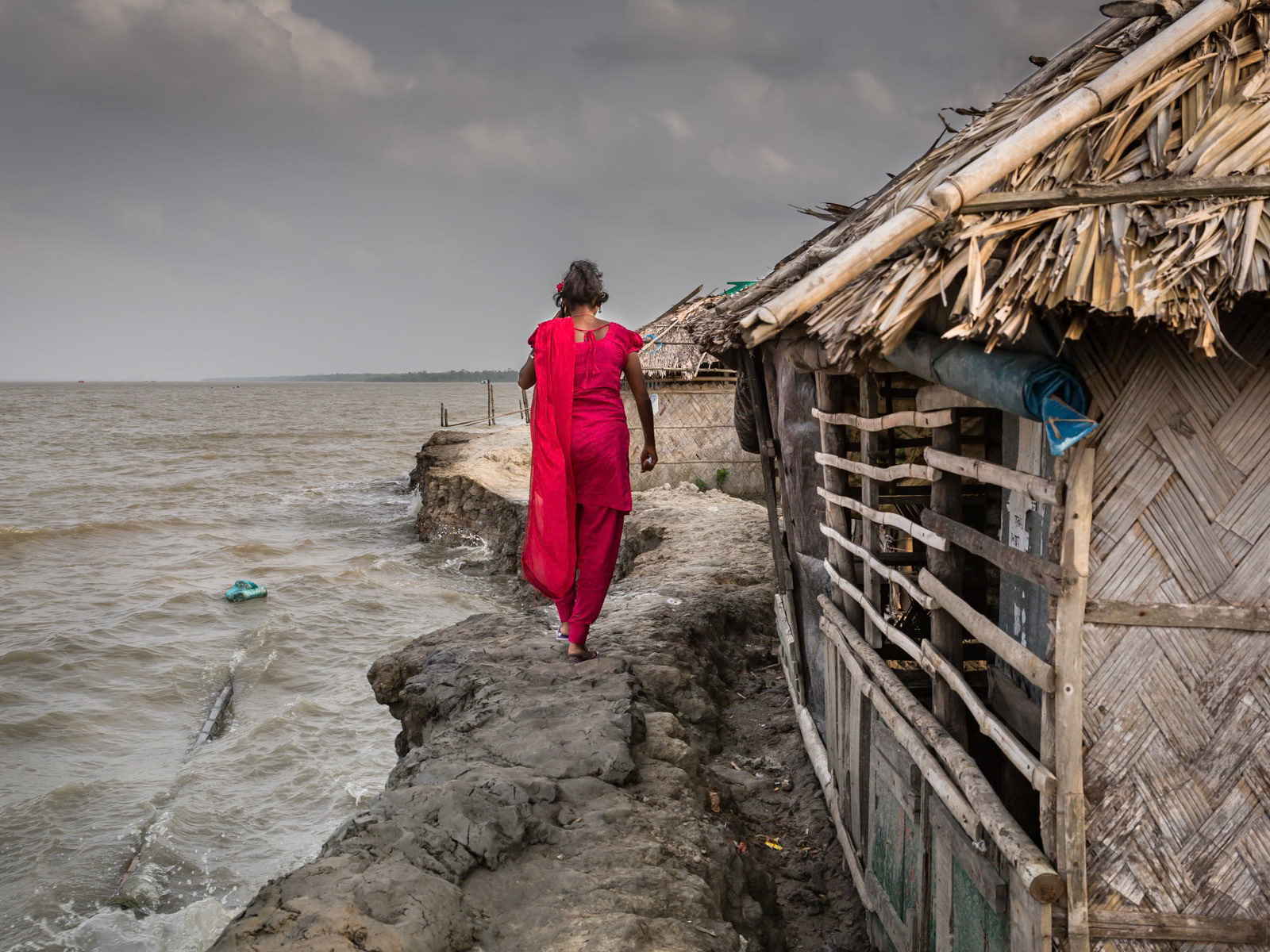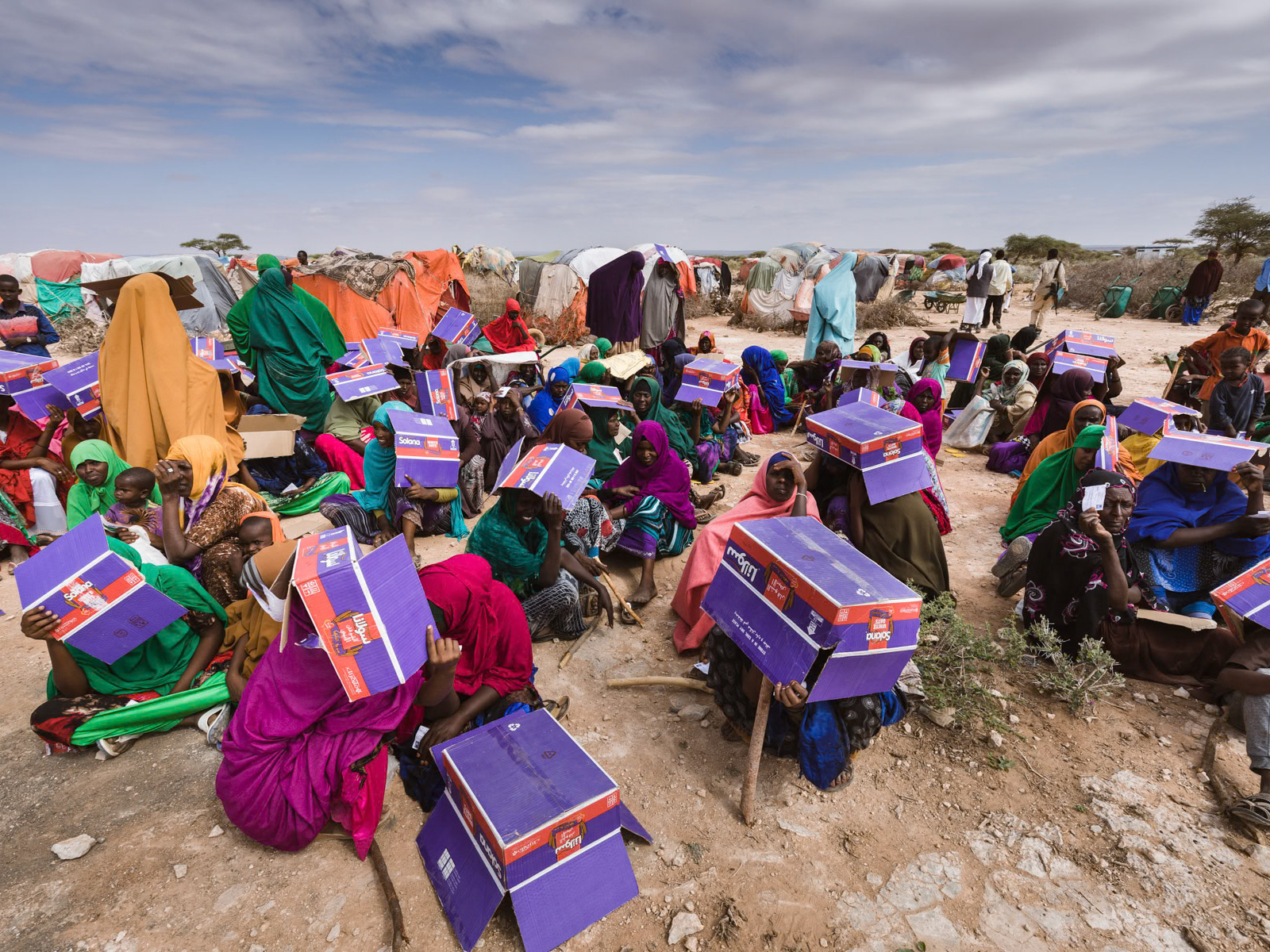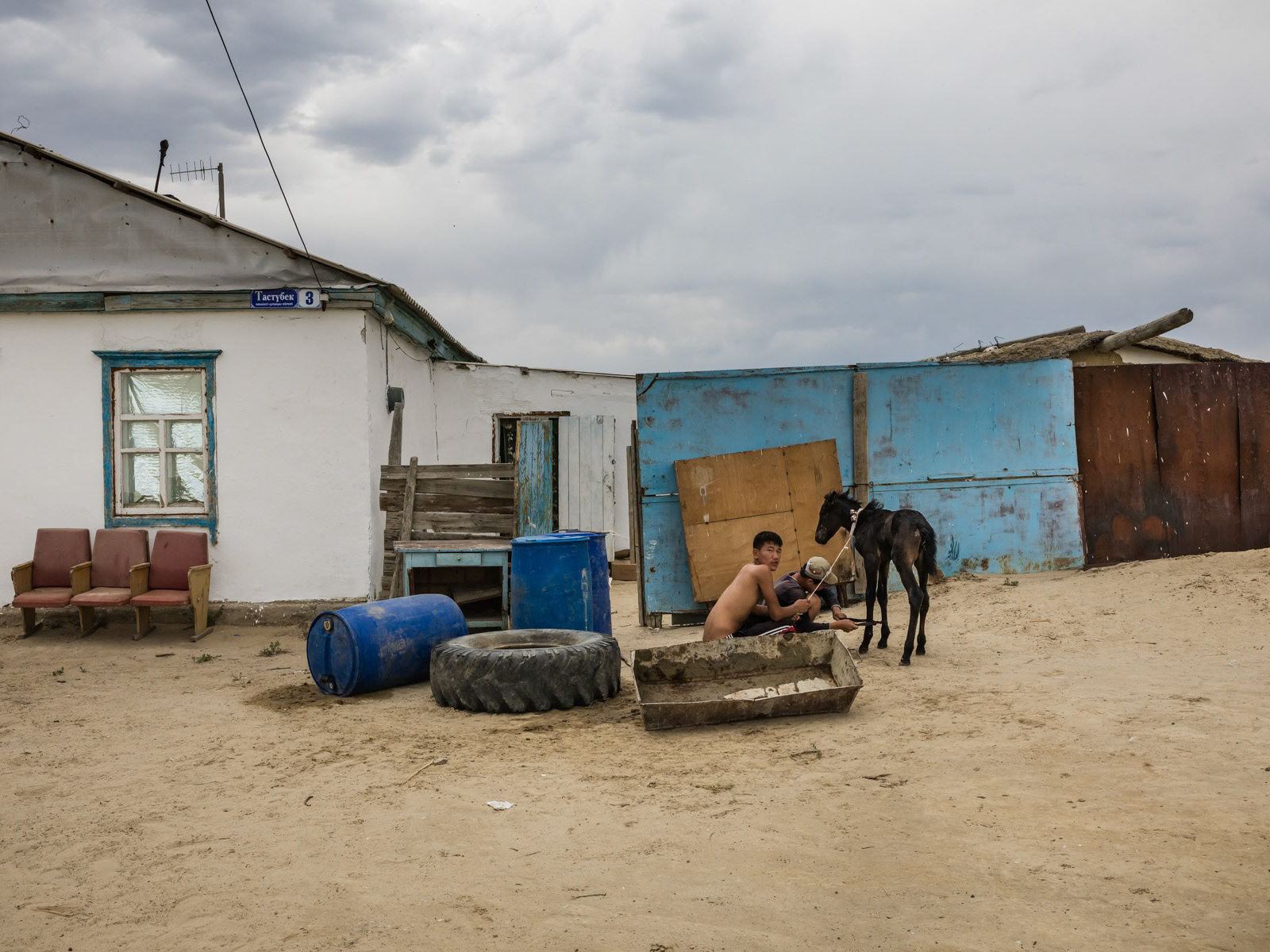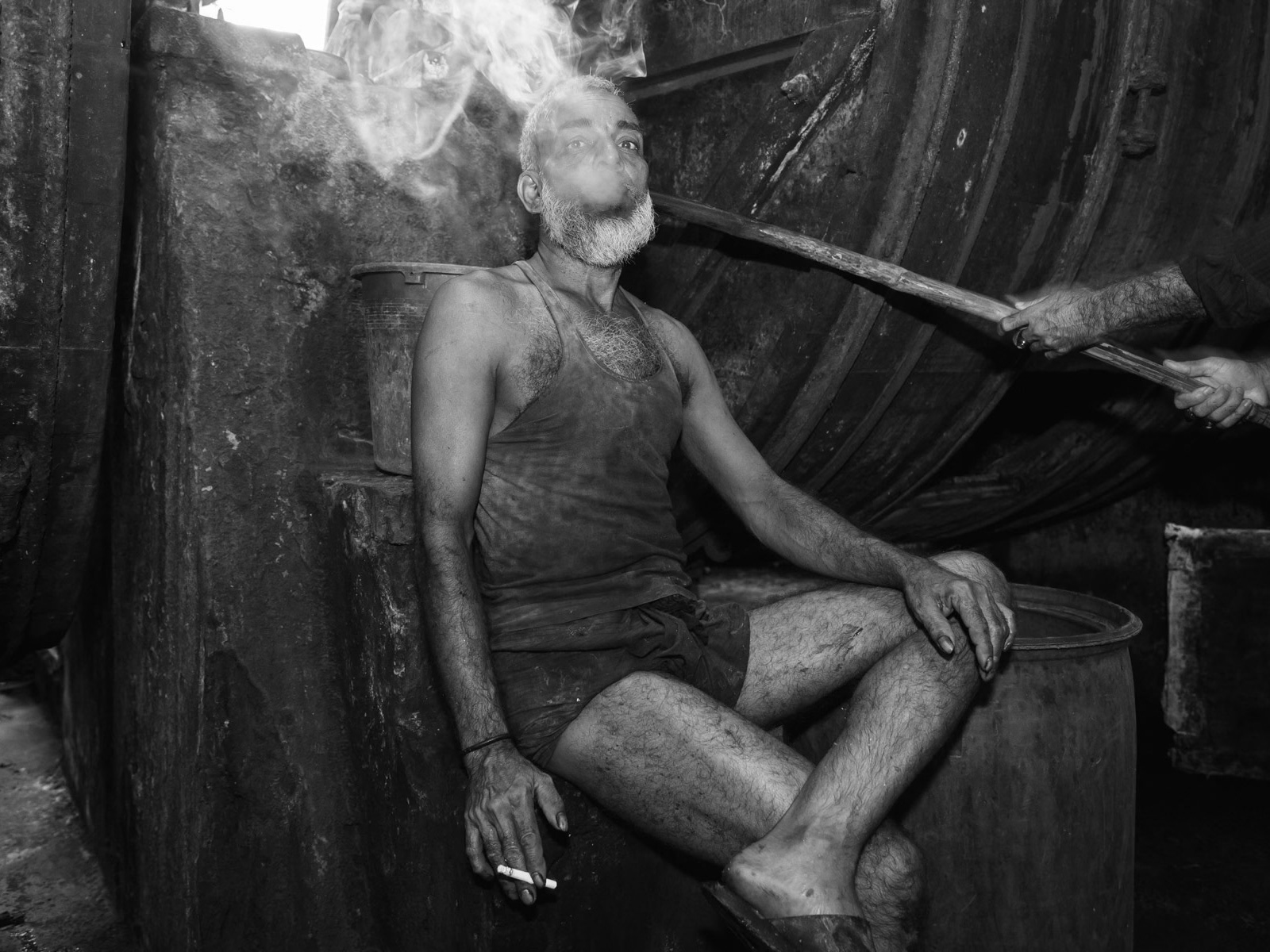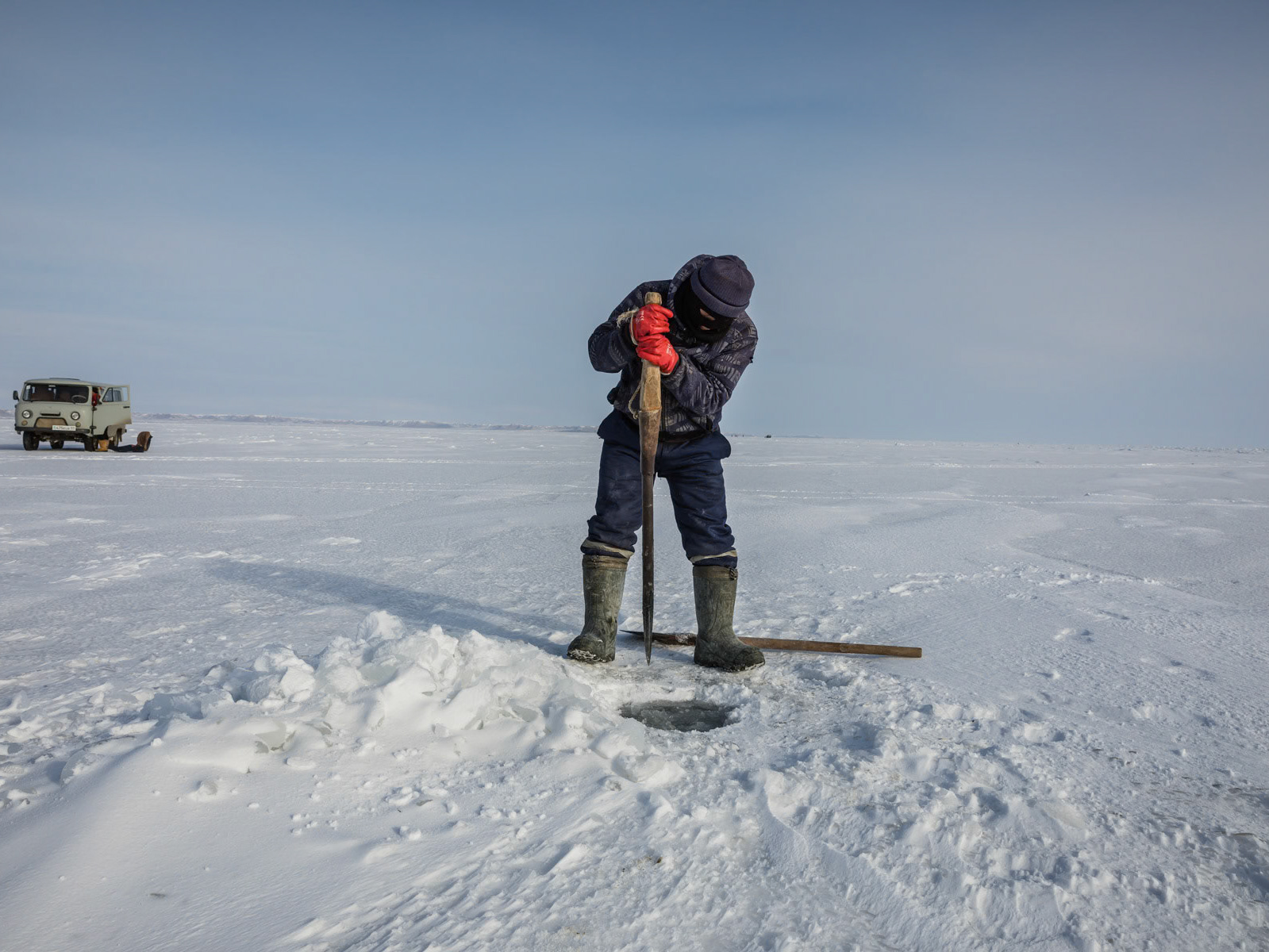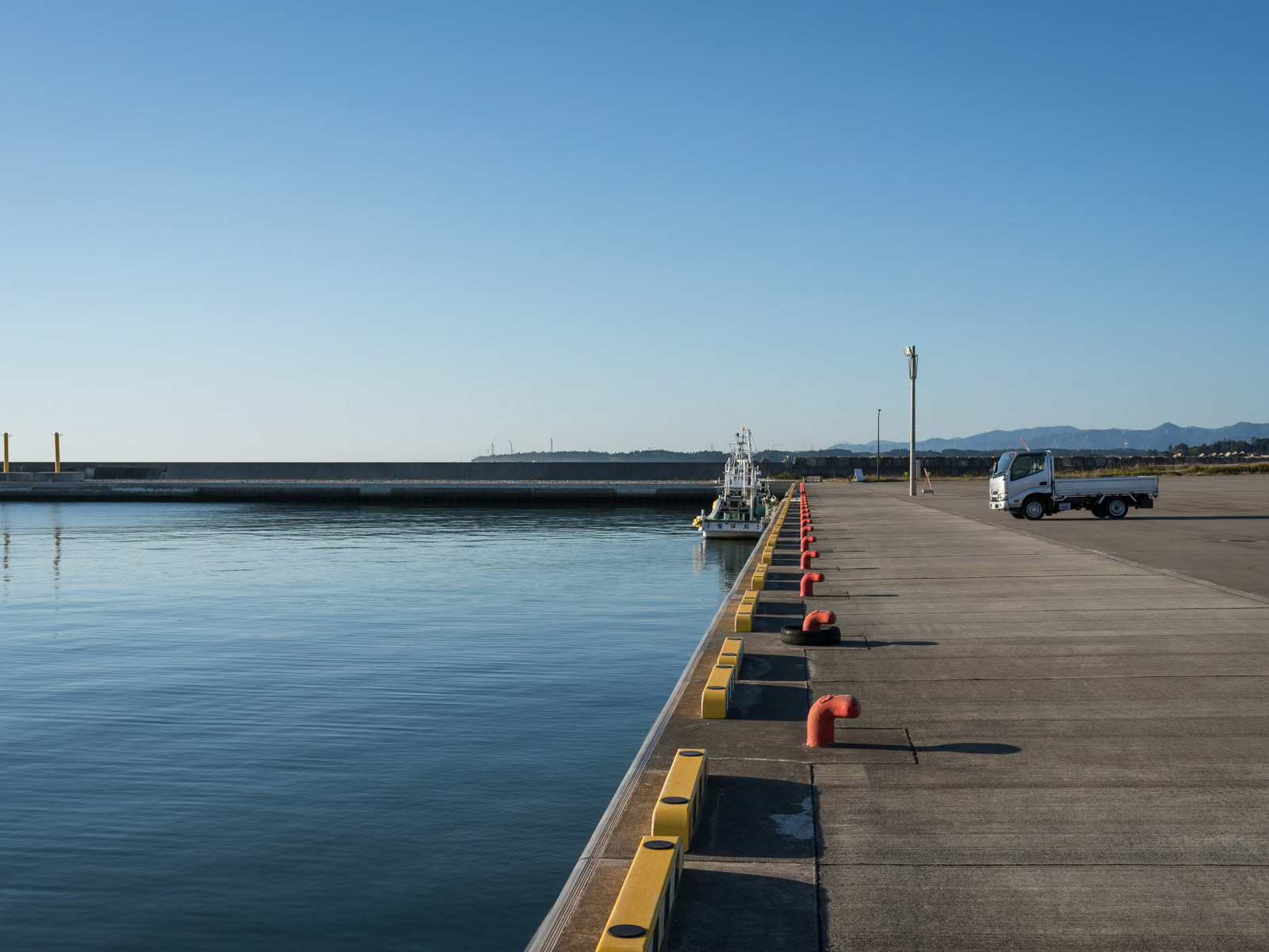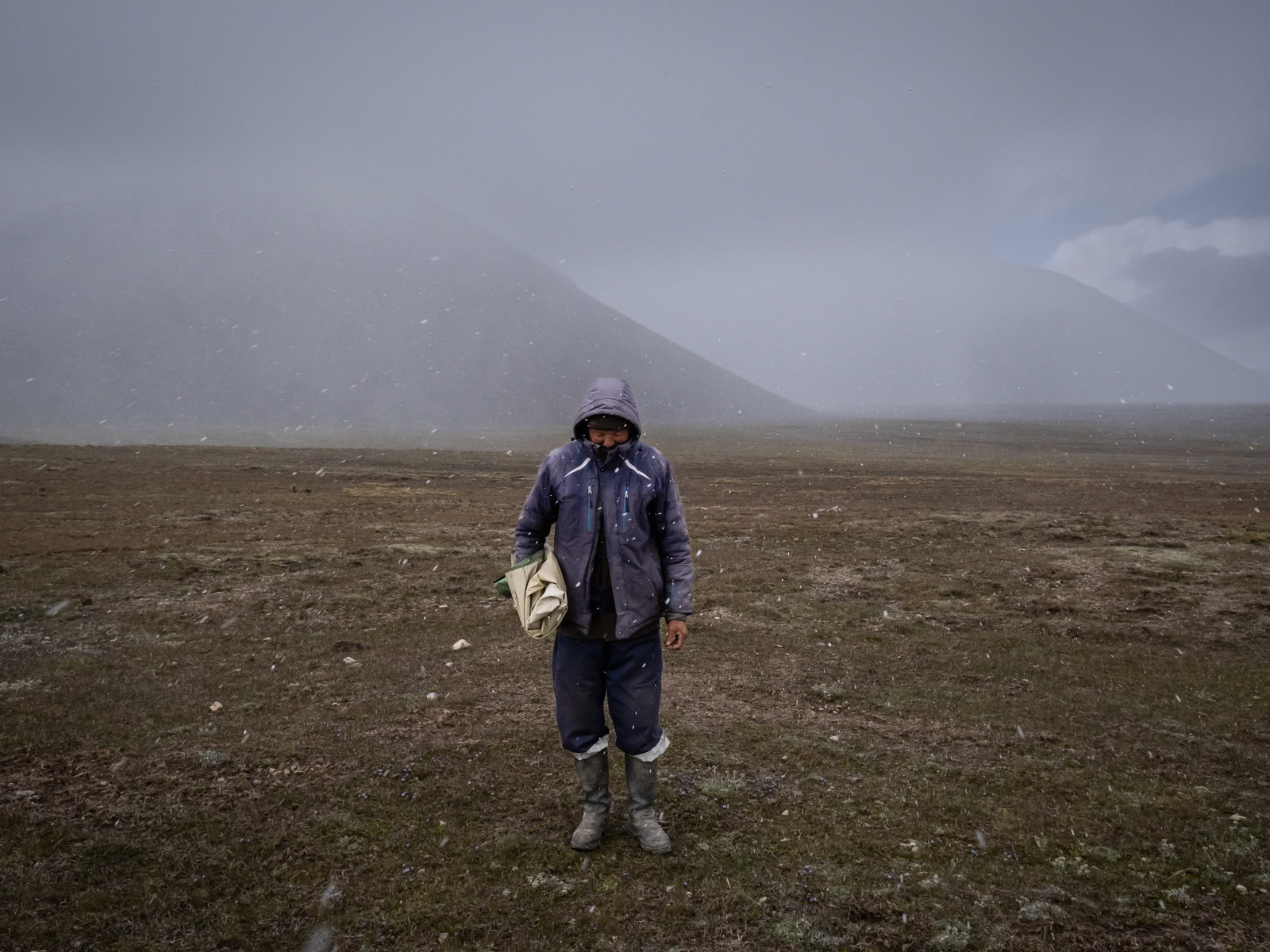The Orang Asal are the indigenous people of Malaysia, comprising approximately 2.1 million individuals. The term "Orang Asal," meaning "Original People" in Malay, refers to the aboriginal communities of Sabah and Sarawak in East Malaysia (Northern Borneo), as well as the Orang Asli in Peninsular Malaysia. The Orang Asli, a smaller subgroup with around 150,000 members, make up less than 1% of the national population and are divided into various ethnic groups and tribes.
The Orang Asal have their own distinct religions, customs, and languages. As the "Original People" of Malaysia, they are granted special privileges under the country's Constitution. However, they remain marginalized, especially in comparison to the ethnic Malay majority. One of the key issues they face is the loss of traditional land due to agriculture, mining, and development projects, including illegal logging, mining, and palm oil plantations. These activities occur on land that is considered ancestral hunting grounds and territory, displacing communities and forcing them into resettlement areas.
The Orang Asli in Peninsular Malaysia lead diverse lifestyles, ranging from fishermen and farmers to hunter-gatherers. While many are now settled, some still maintain semi-nomadic practices, relying on the rainforest for sustenance. Unfortunately, deforestation and the encroachment of industrial activities have placed tremendous pressure on their environment, further marginalizing their communities. Over the past few decades, mining, logging, and palm oil plantations have severely disrupted their way of life. Today, through resettlement projects, many Orang Asli live in small communities on the periphery of the rainforest, facing an uncertain future as their traditional lands continue to shrink.
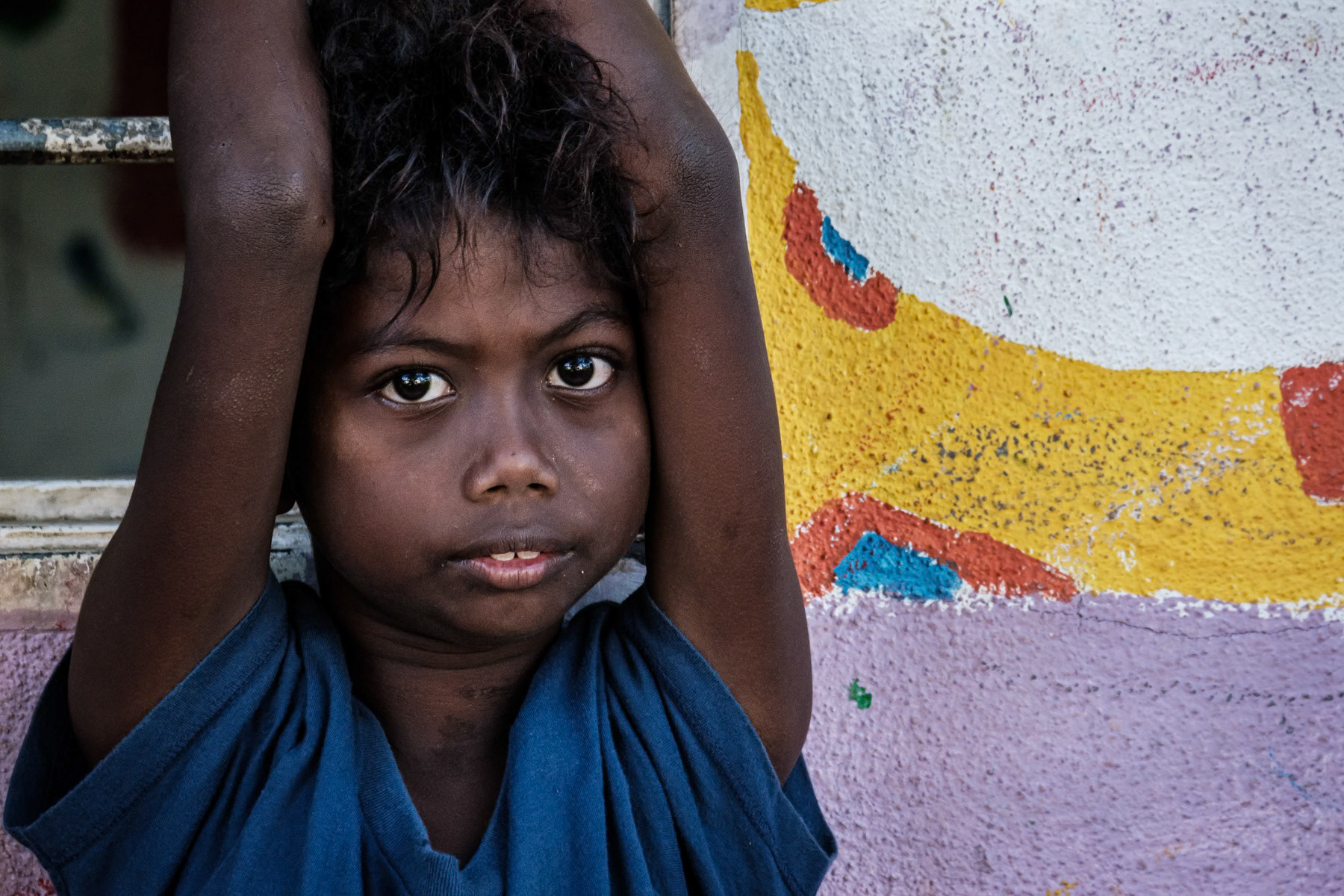
The Orang Asal are the indigenous people of Malaysia and about 2.1 million. Orang Asal is the term for "Original People" in Malay and refers to the aboriginal communities of Sabah and Sarawak in East Malaysia (Northern Borneo) and Peninsular Malaysia where they are known as Orang Asli. The Orang Asli are only about 150,000 and less than 1% of the population, they are further divided in ethnic subgroups and tribes. The Orang Asal have their own religions and customs, as well as unique languages. Orang Asal are as "Original People" of Malaysia granted special privileges under the Constitution of Malaysia. However, their communities remain substantially marginalised in contrast with ethnic Malays. Especially with regard to land use and ownership, which is often grabbed for agriculture, mining and development purposes. In particular (illigal) logging, mining and palm oil plantations that often occurs on what is considered Orang Asal traditional land and hunting ground, have dramatic effects forcing them to move out of their traditional habitat and live in resettlement areas. The Orang Asli in Peninsula Malaysia have lifestyles varying from fishermen to farmers to hunter-gatherers. Though most are now settled, some remain semi-nomadic with the rainforest as their privileged lands. Unfortunately the rainforest, their natural habitat, is under immense pressure with deforestation pushing the Orang Asal further away and treathening their lifestyle marginalising them even more. Child of the Bateq community, a tribe of the Orang Asli. During the past decennia mine exploitation, logging and widespread palm oil plantations have severely jeopardized their lifestyle and livelihood. Through re-settlement projects they are mostly living in small community clusters at the edge of the rainforest. Pecah Keljbi settlement, Merapoh, Pahang, Malaysia, February 2020
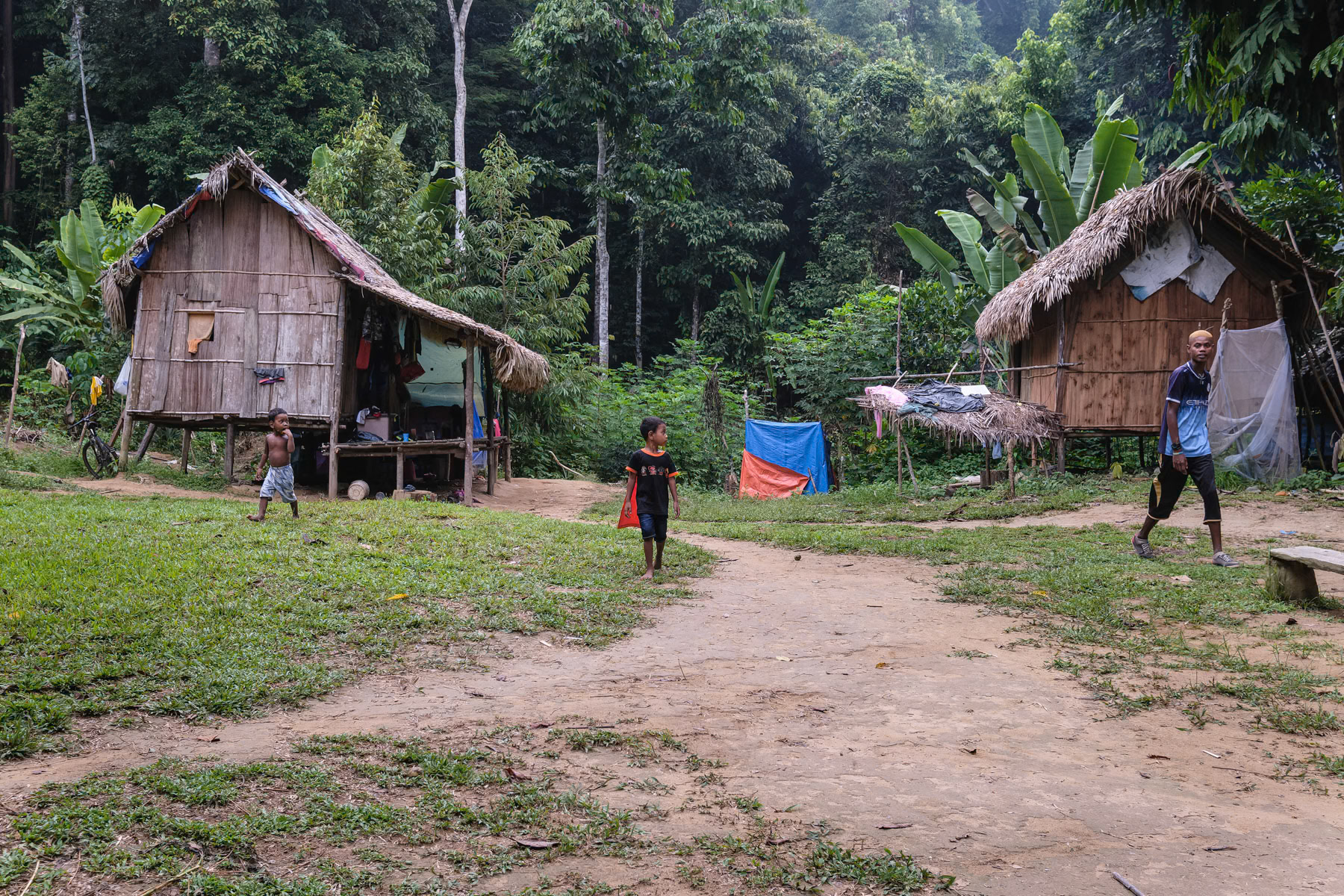
A small Bateq village on the edge of the Taman Negara Rainforest. The Bateq are an indigenous tribe of this part of Malaysia. Their usual habitat is the rainforest where they used to live and hunt most of the time. During the past decades they have been gradually moved towards new settlements around the rainforest for better access to schools and healthcare. This has however disturbed fundamentally their traditional way of life. Orang Asli village, Kuala Tahan, Malaysia, June 2023
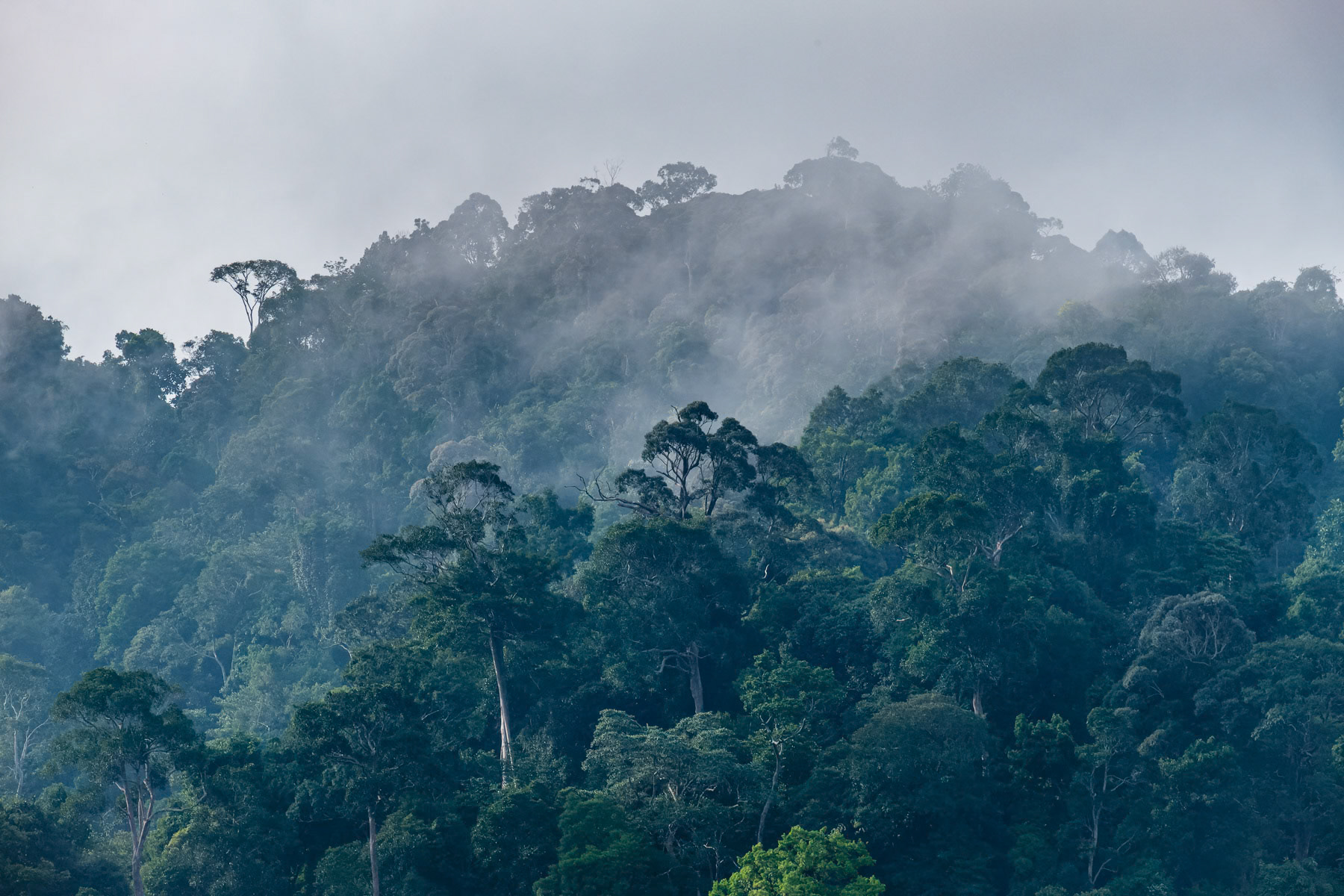
Northern part of the Taman Negara Rainforest. Taman Negara is estimated to be 130 million years old and one of the oldest rainforest on the planet. In an effort of preservation it was established as a National Park in 1939. Several indigenous tribes used to live in this vast area of more than 4,000 km2 but have mostly been driven out and settled in villages on the edge of the rainforest. Taman Negara, Kuala Tahan, Pahang, Malaysia. June 2023
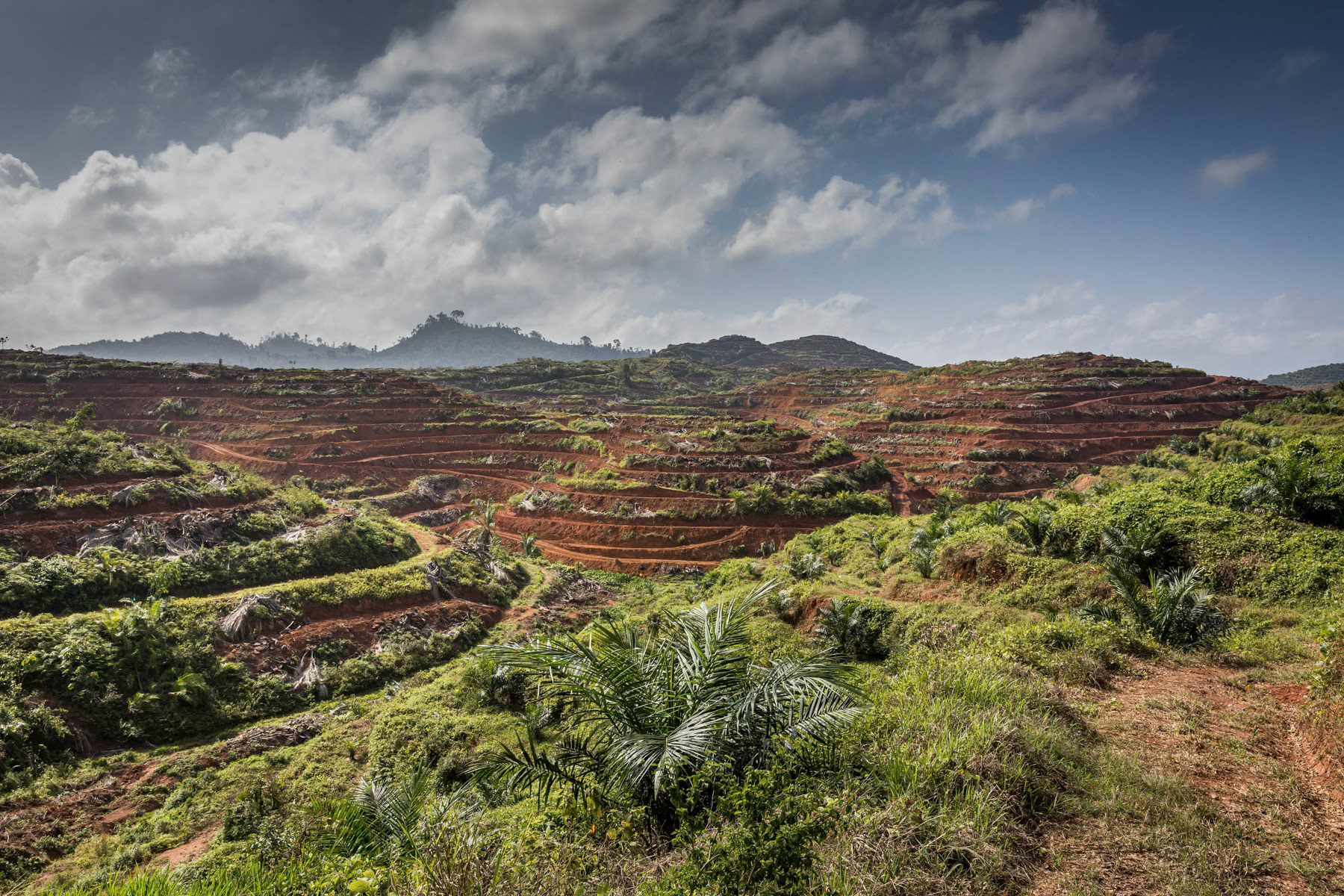
Hills, once covered with primary rainforest, used for palm oil plantations. Road to Kuala Koh, Kelantan, Malaysia, February 2020
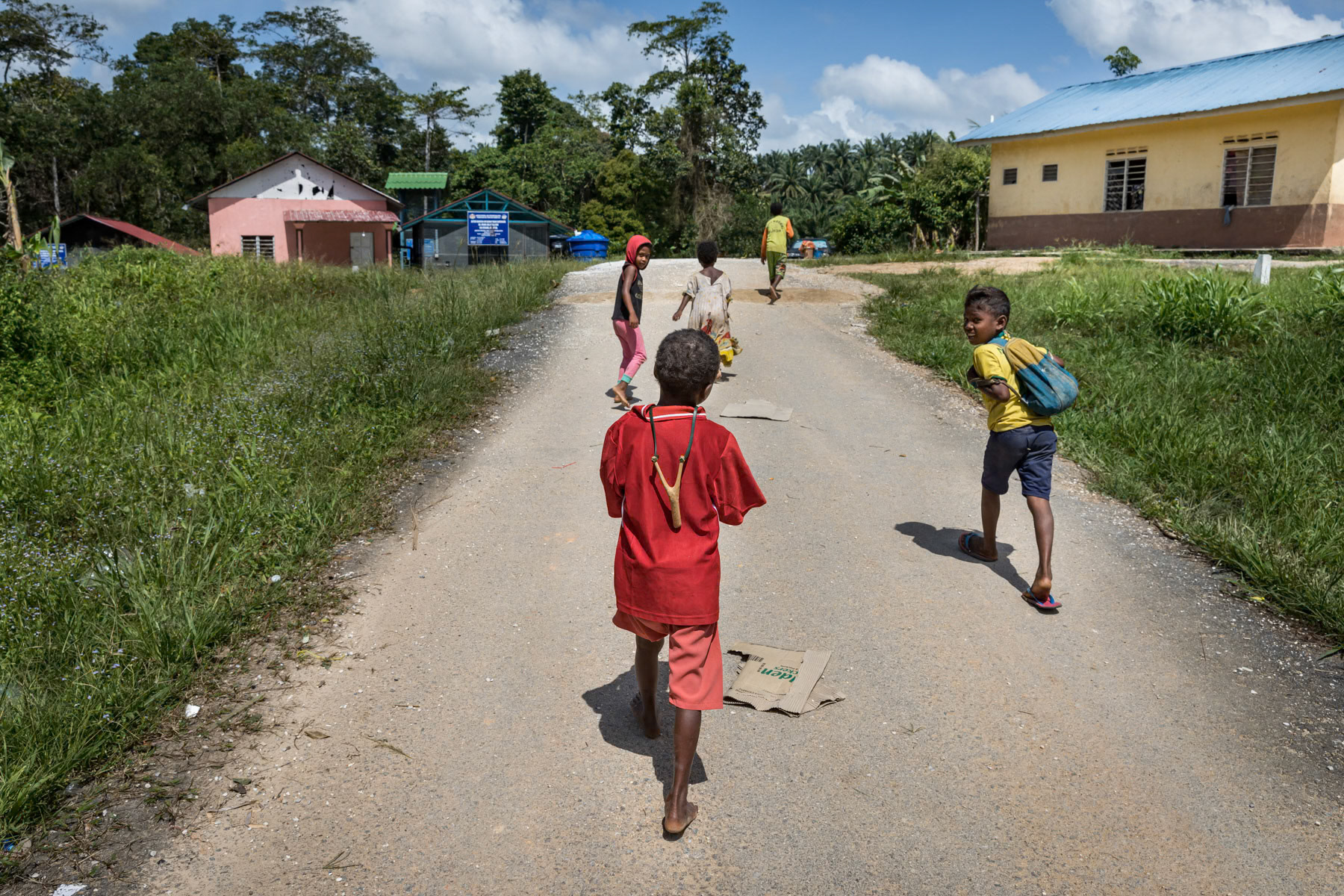
Children of the Bateq community. Bateq people are originally hunters living with and in the tropical rainforest. During the past decennia mine exploitation, logging and widespread palm oil plantations have severely jeopardized their way of life and livelihood. Through re-settlement projects they are mostly living in small community clusters at the edge of the rainforest. Kuala Koh, Kelantan, Malaysia, February 2020
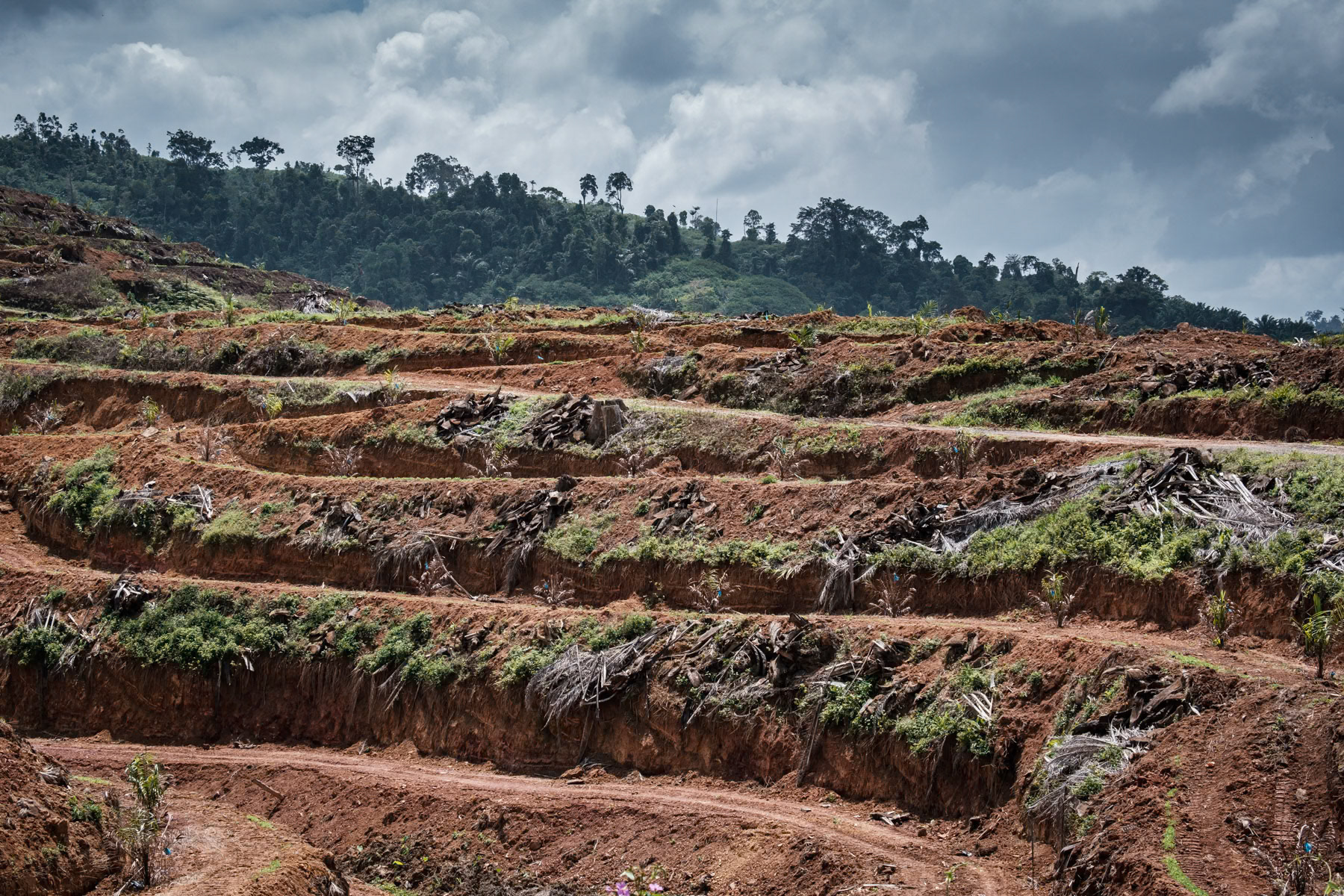
Palm oil plantations that are replacing primary rainforest at an alarming rate, destroying eco systems and the livelihood of indigenous communities that used to live in the rainforest. Road to Kuala Koh, Kelantan, Malaysia, February 2020
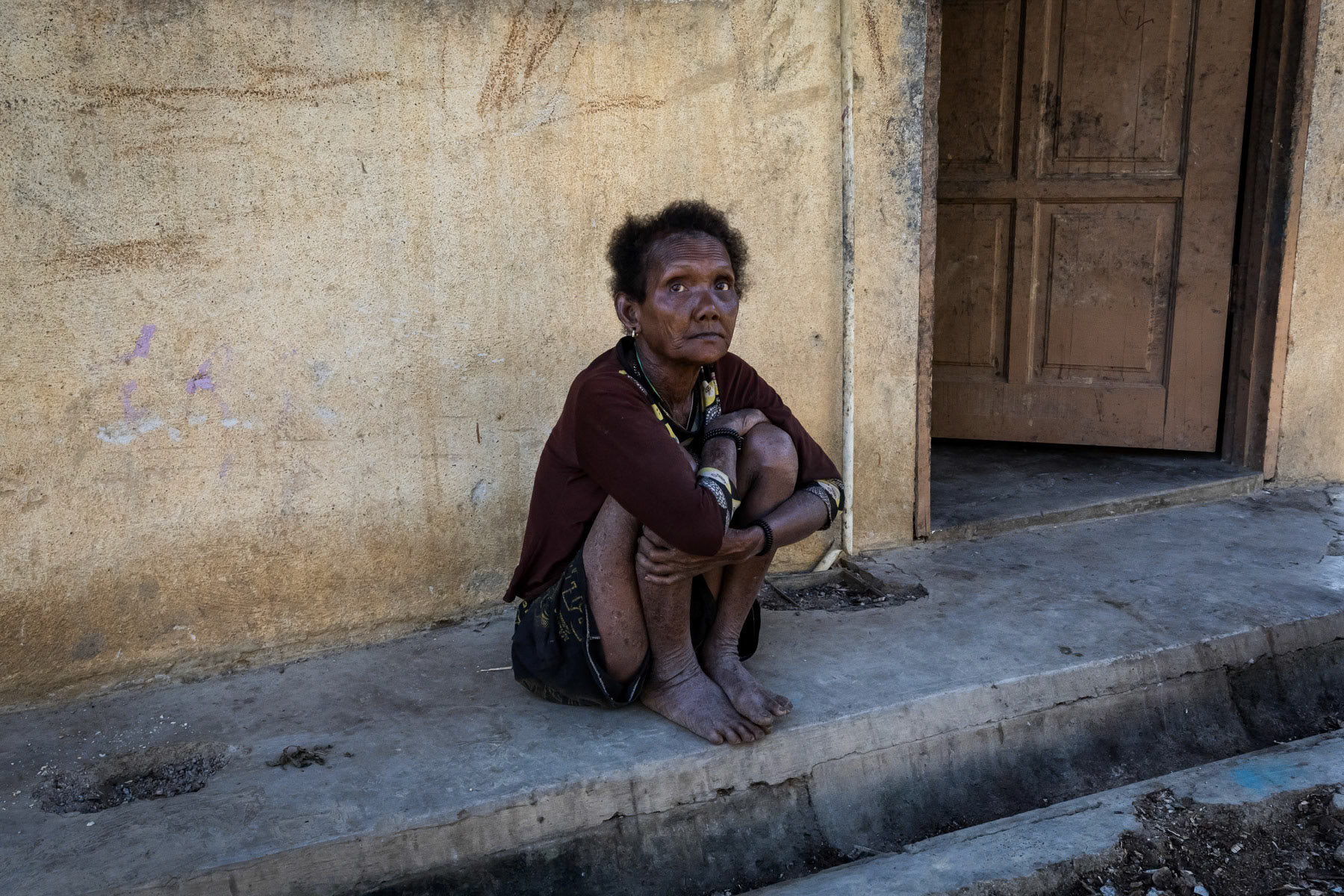
Old woman of the Bateq community, a tribe of the Orang Asli, the indigenous people of Malaysia. During the past decennia mine exploitation, logging and widespread palm oil plantations have severely jeopardized their way of life and livelihood. Through re-settlement projects they are mostly living in small community clusters at the edge of the rainforest. Pecah Keljbi settlement, Merapoh, Pahang, Malaysia, February 2020
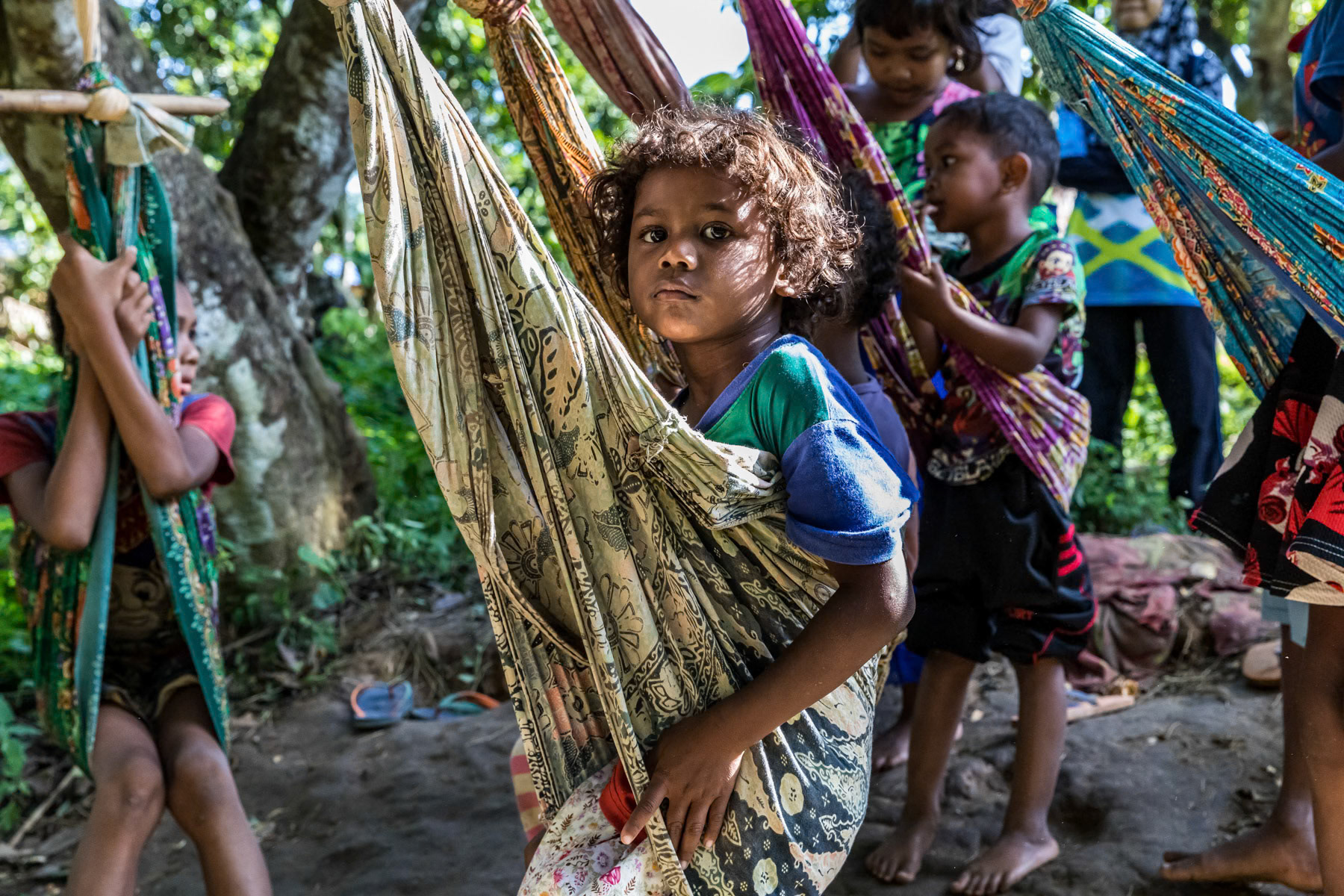
Children of the Bateq community playing. Pecah Keljbi settlement, Merapoh, Pahang, Malaysia, February 2020
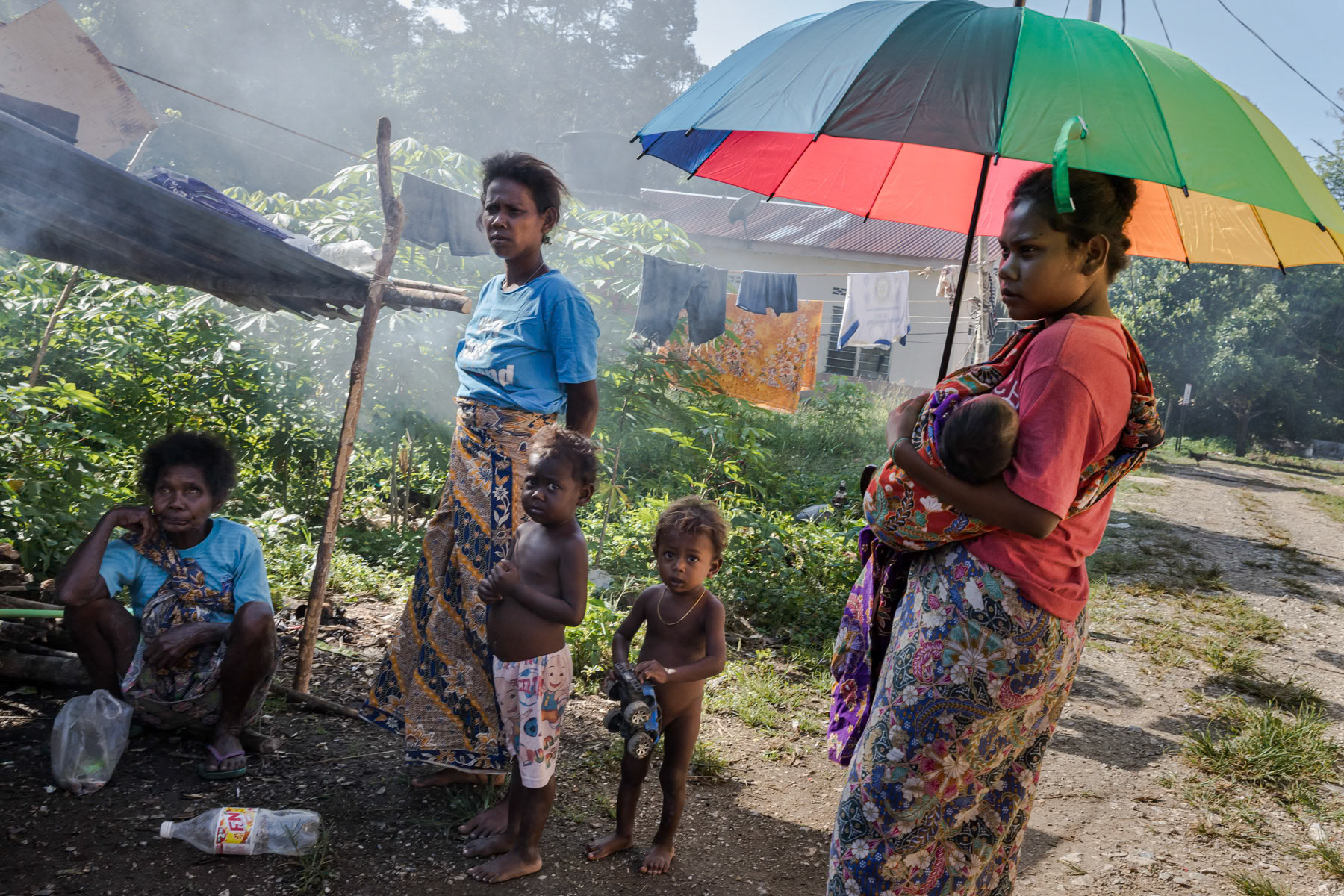
Orang Asli, indingenous people of the Bateq community. Bateq people are originally hunters living with and in the tropical rainforest. During the past decennia mine exploitation, logging and widespread palm oil plantations have severely jeopardized their way of life and livelihood. Through re-settlement projects they are mostly living in small community clusters at the edge of the rainforest. Pecah Keljbi settlement, Merapoh, Pahang, Malaysia, February 2020
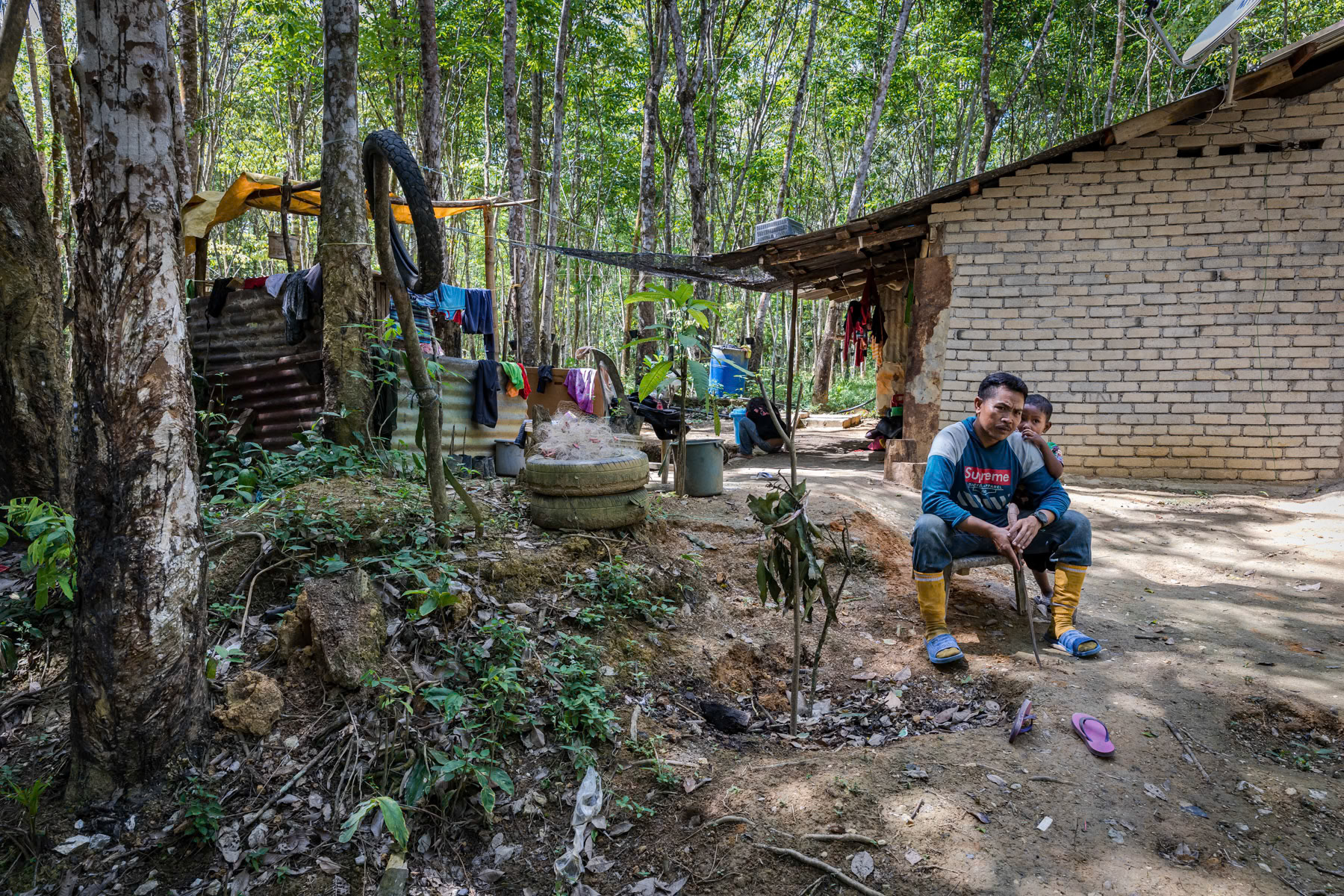
Orang Asli, indingenous people of the Bateq community. Bateq people are originally hunters living with and in the tropical rainforest. During the past decennia mine exploitation, logging and widespread palm oil plantations have severely jeopardized their way of life and livelihood. Through re-settlement projects they are mostly living in small community clusters at the edge of the rainforest. Pecah Keljbi settlement, Merapoh, Pahang, Malaysia, February 2020
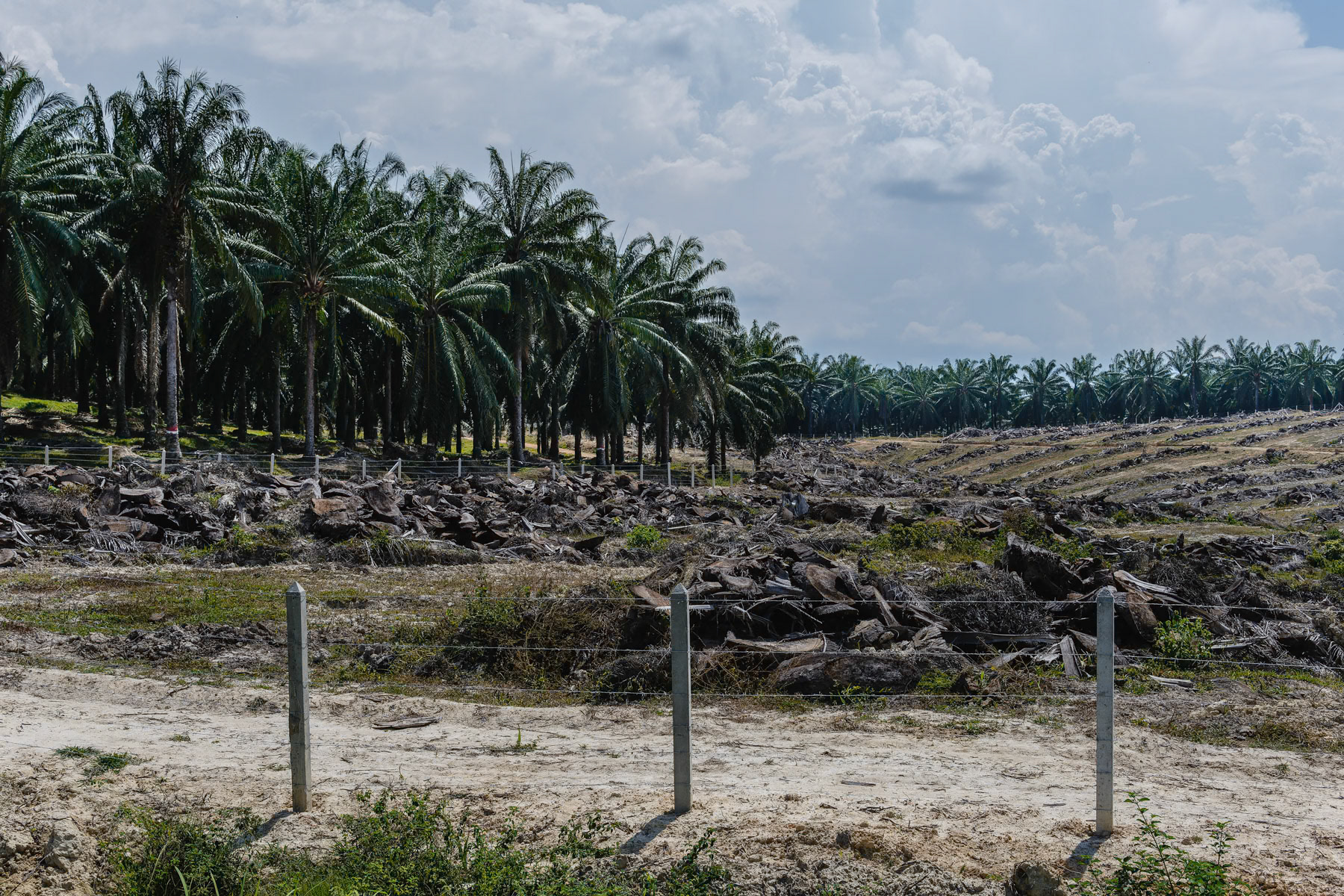
Cleared land for ever expanding palm oil plantations. This monoculture degrades rapidly the soil with frequent catastrophic landslides in the mostly hilly areas of the country. Pahang, Malaysia, June 2023
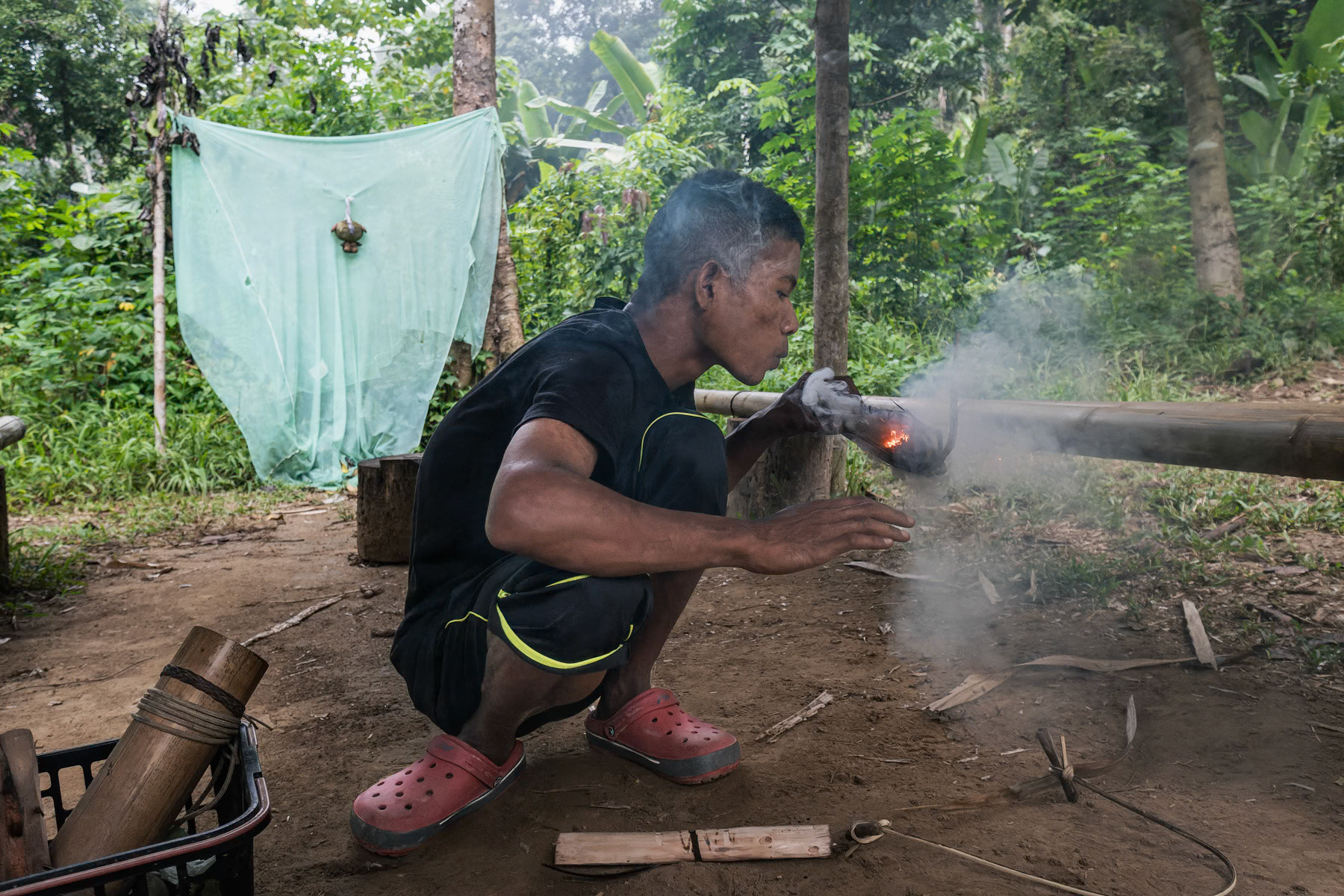
A young adult of the indigenous Bateq community making fire with rattan and mahagonia wood. Orang Asli village in the Taman Negara rainforest. Pahang, Malaysia, June 2023
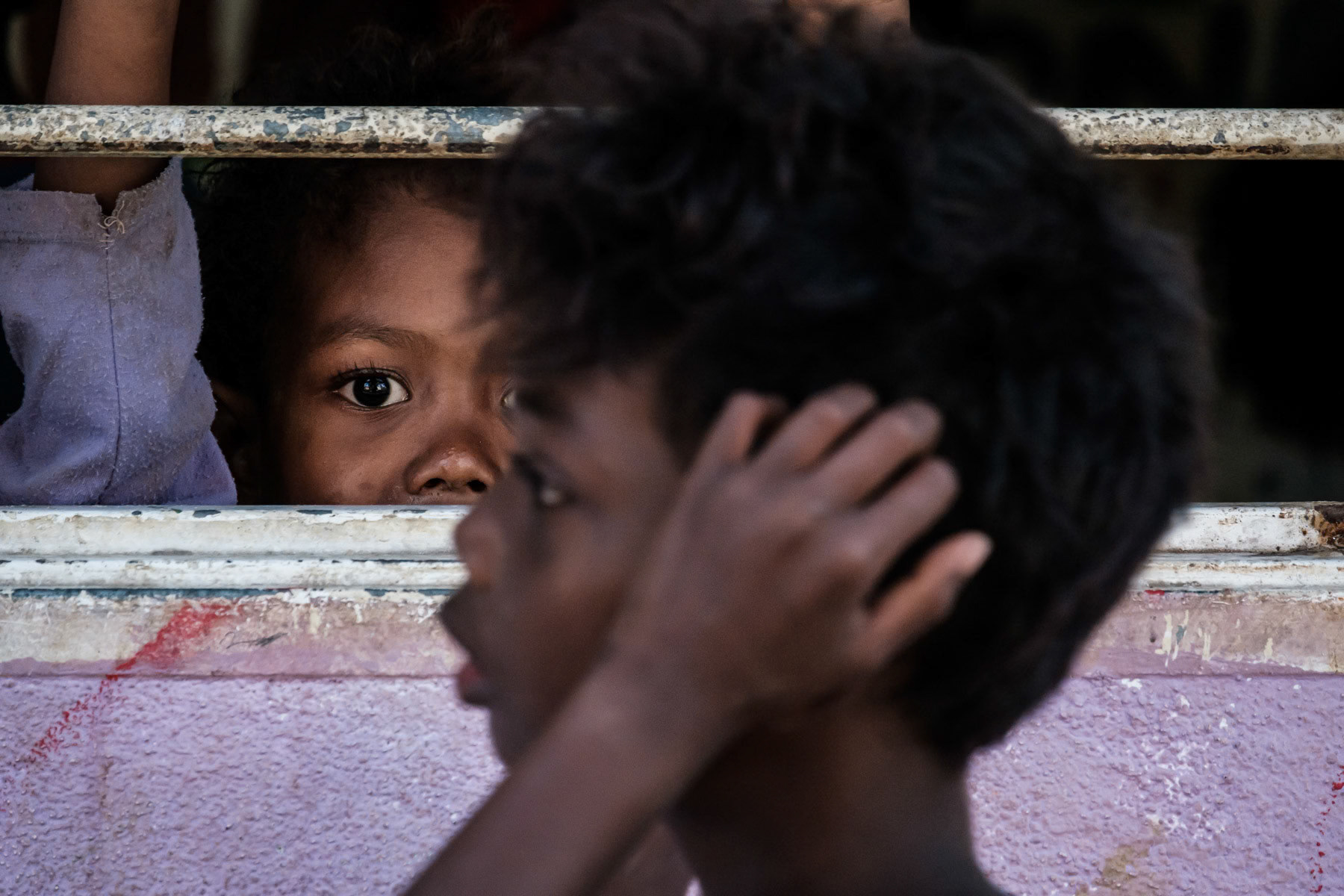
Children of the Bateq community, a tribe of the Orang Asli, the indigenous people of Malaysia. During the past decennia mine exploitation, logging and widespread palm oil plantations have severely jeopardized their way of life and livelihood. Through re-settlement projects they are mostly living in small community clusters at the edge of the rainforest. Pecah Keljbi settlement, Merapoh, Pahang, Malaysia, February 2020
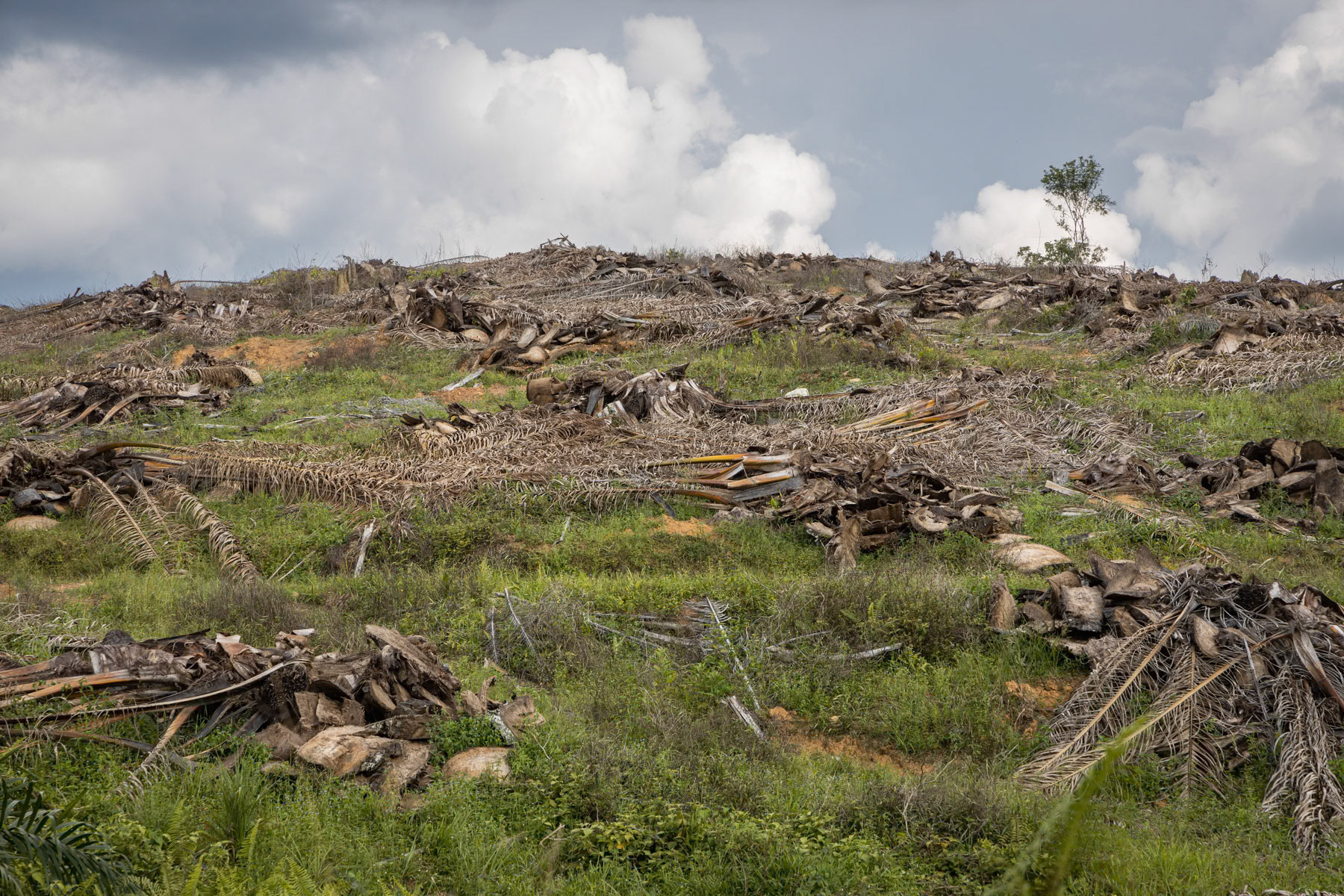
Cleared land for a palm oil plantation that is replacing primary rainforest at an alarming rate, destroying eco systems and the livelihood of indigenous communities that used to live in the rainforest. Kelantan, Malaysia, June 2022
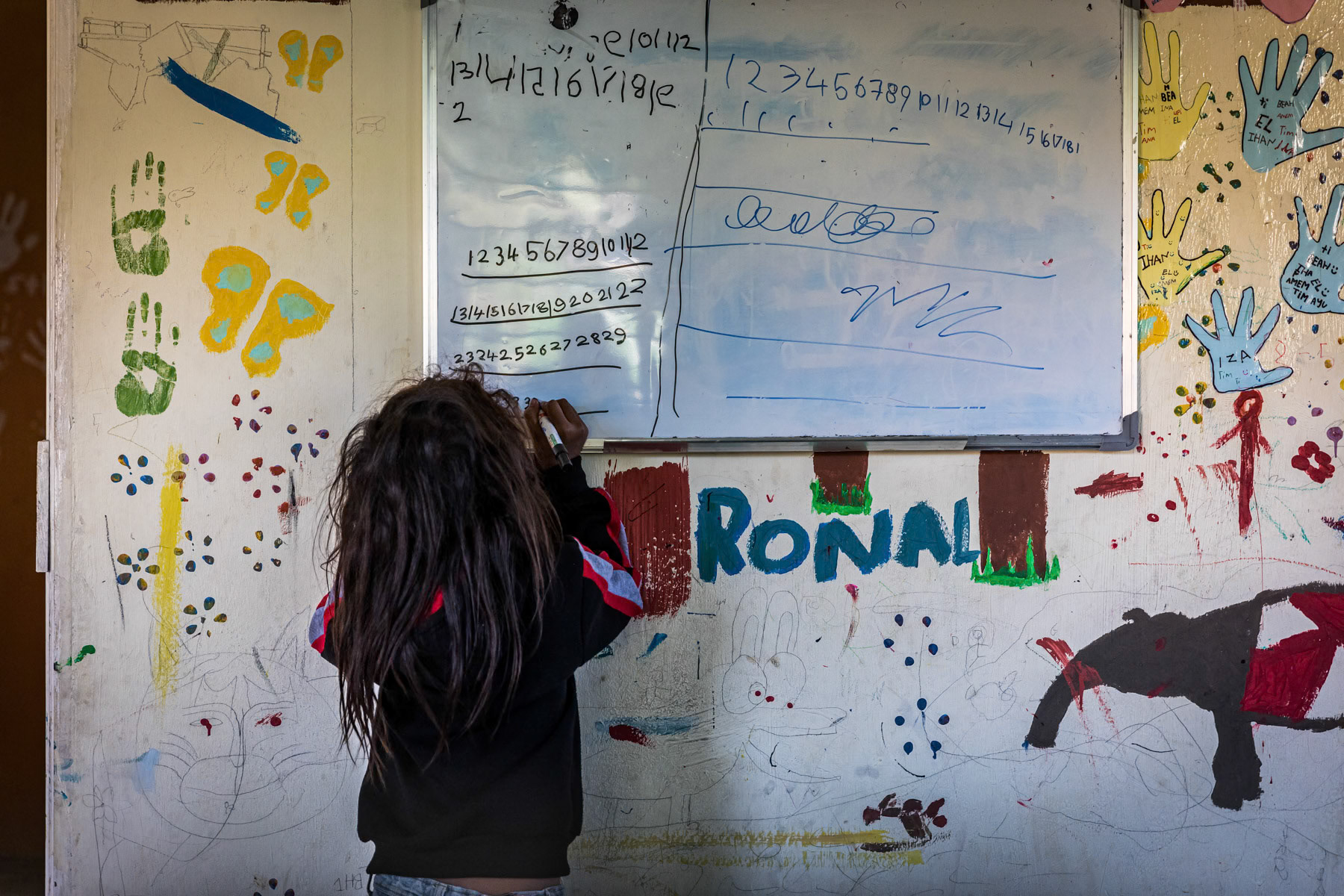
Basic school for children of the Bateq community. Pecah Keljbi settlement, Merapoh, Pahang, Malaysia, February 2020
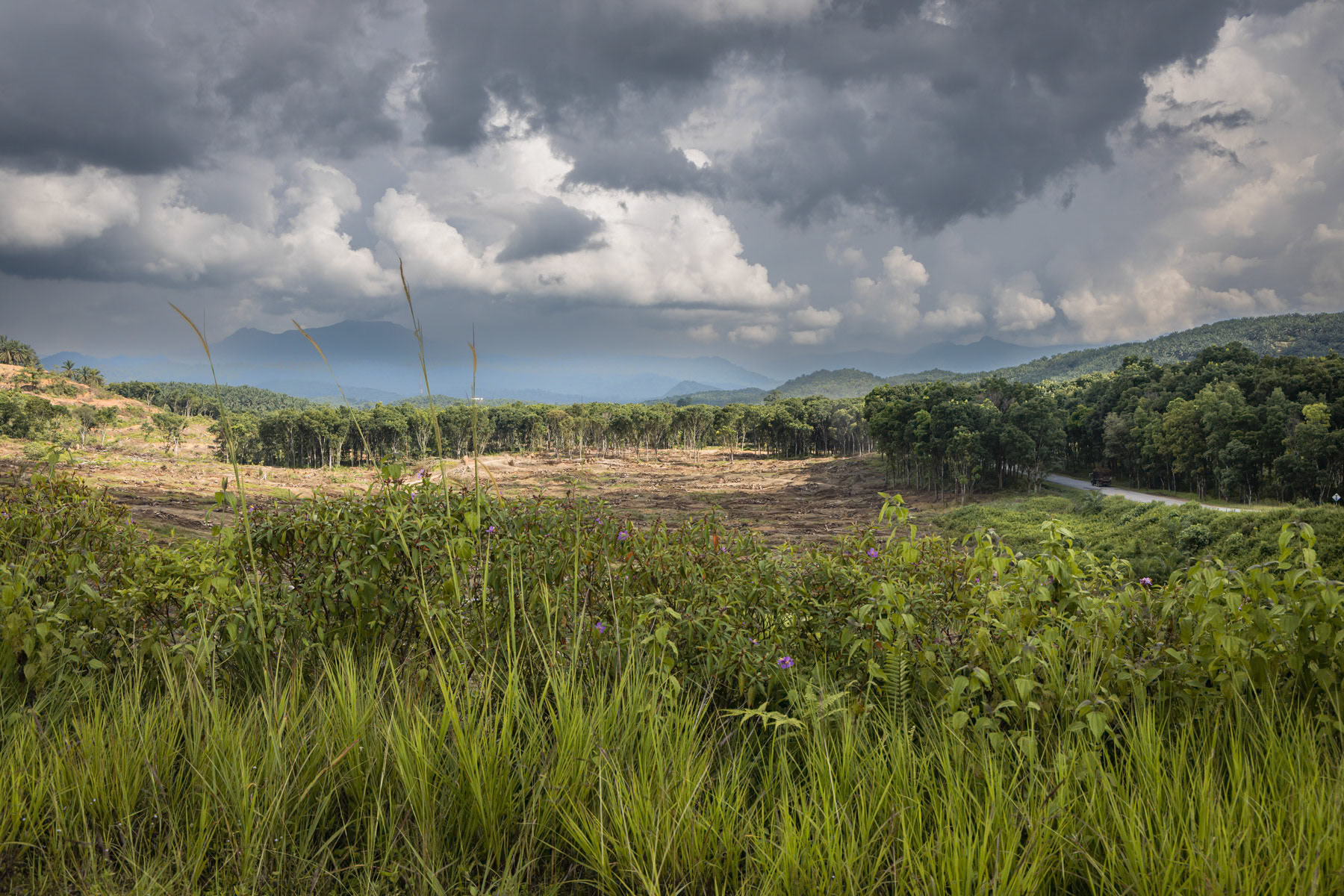
Cleared land for a palm oil plantation that is replacing primary rainforest at an alarming rate, destroying eco systems and the livelihood of indigenous communities that used to live in the rainforest. Kelantan, Malaysia, June 2022
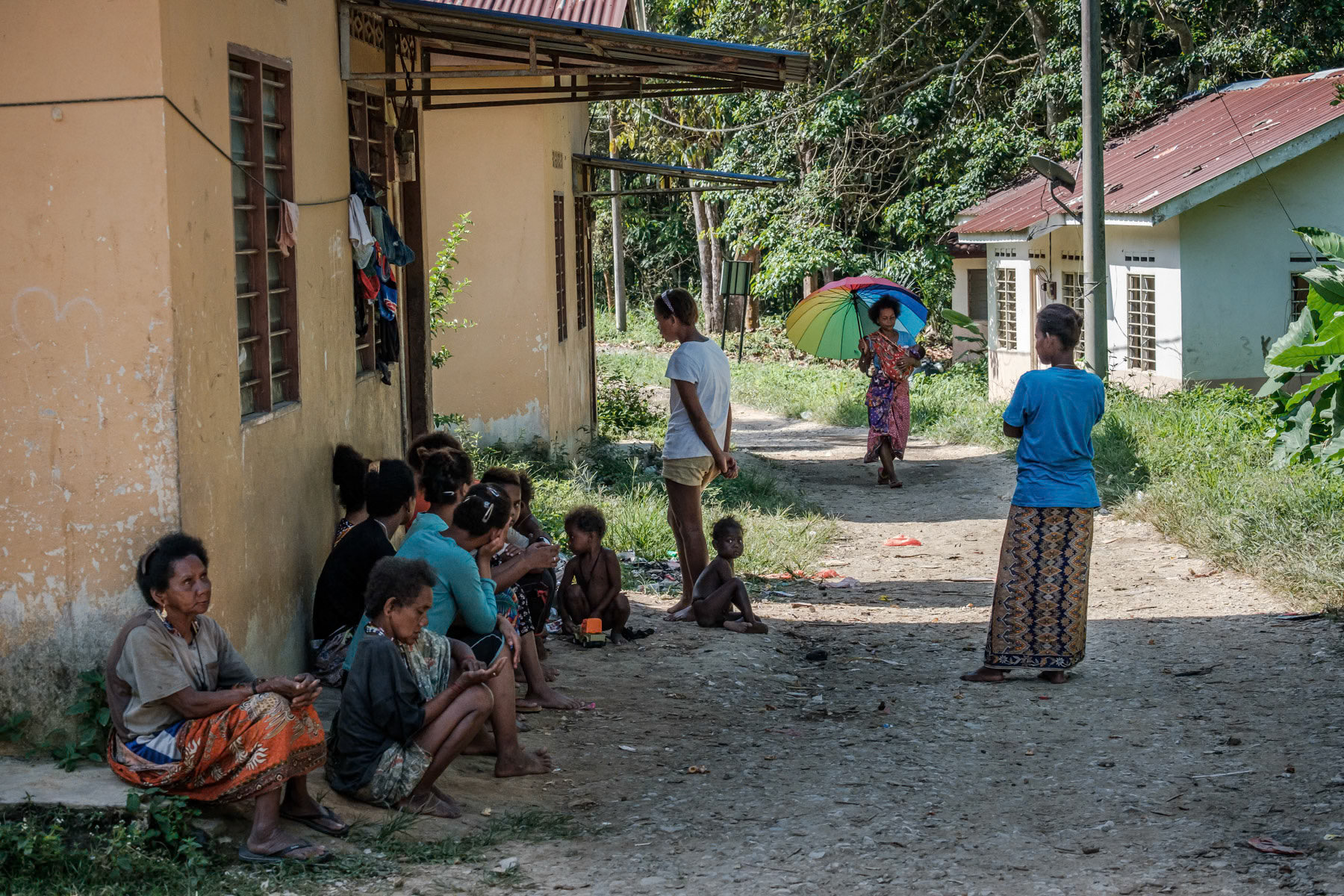
Orang Asli, indingenous people of the Bateq community. Bateq people are originally hunters living with and in the tropical rainforest. During the past decennia mine exploitation, logging and widespread palm oil plantations have severely jeopardized their way of life and livelihood. Through re-settlement projects they are mostly living in small community clusters at the edge of the rainforest. Pecah Keljbi settlement, Merapoh, Pahang, Malaysia, February 2020
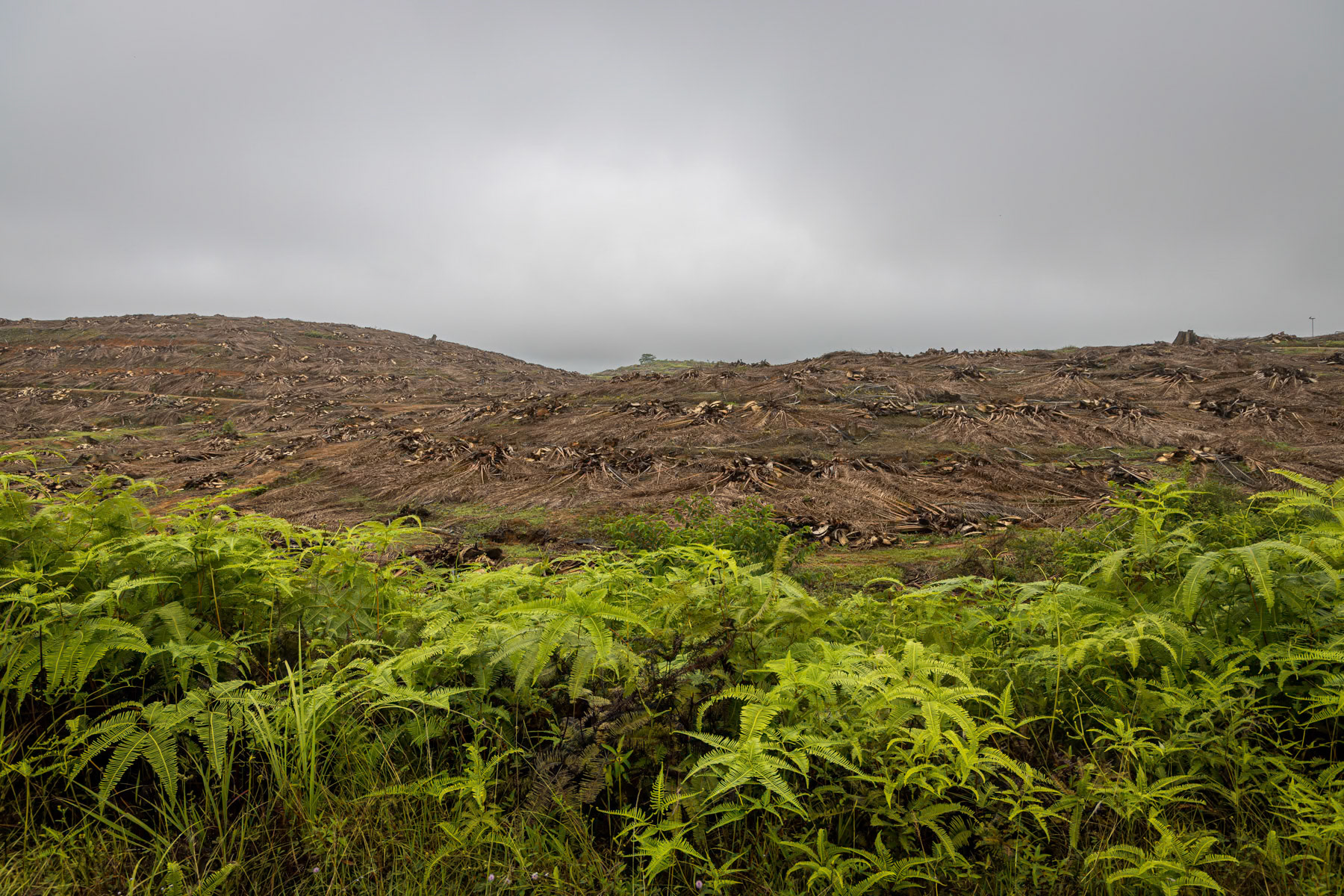
Hills, once covered with primary rainforest, used for palm oil plantations. Road to Kuala Koh, Kelantan, Malaysia, June 2022
